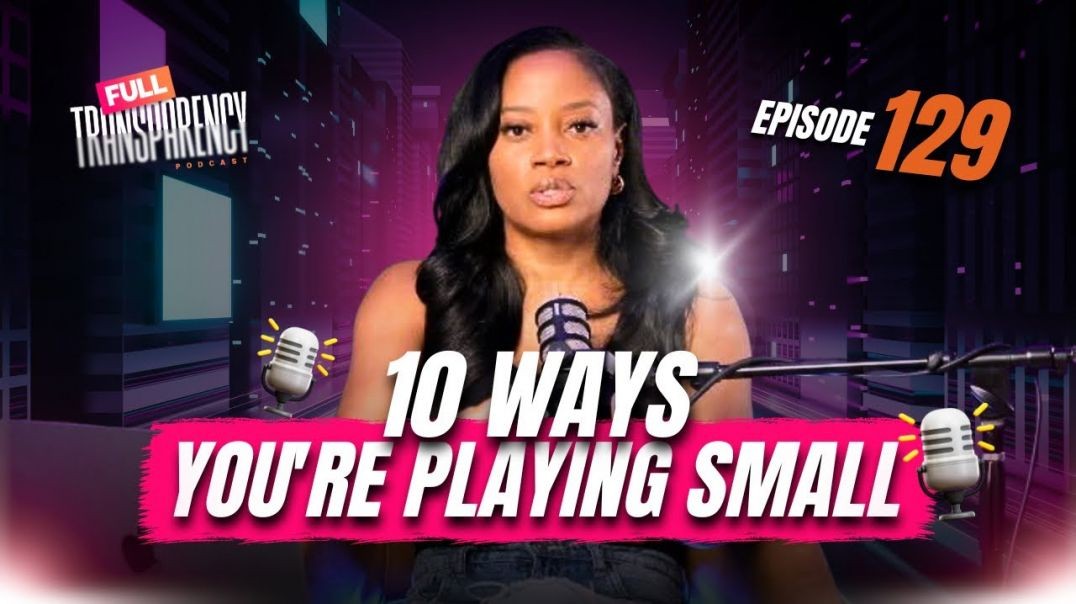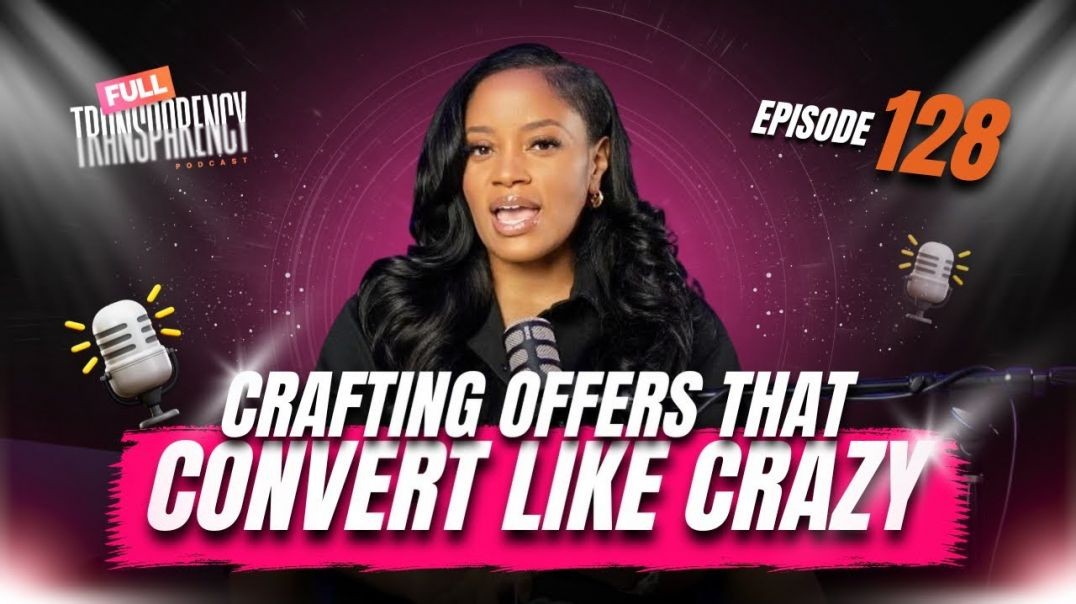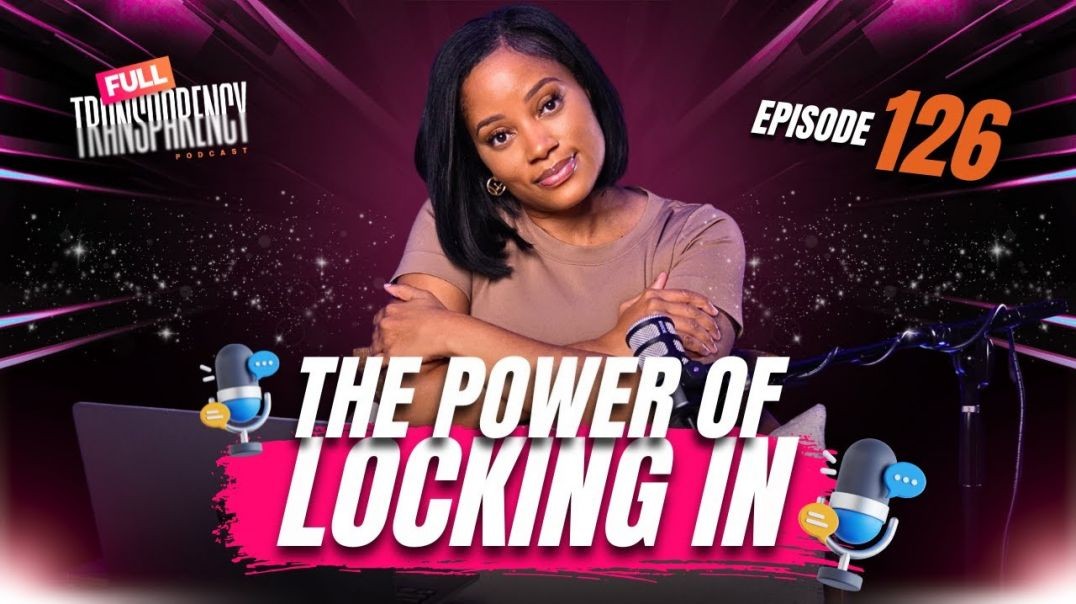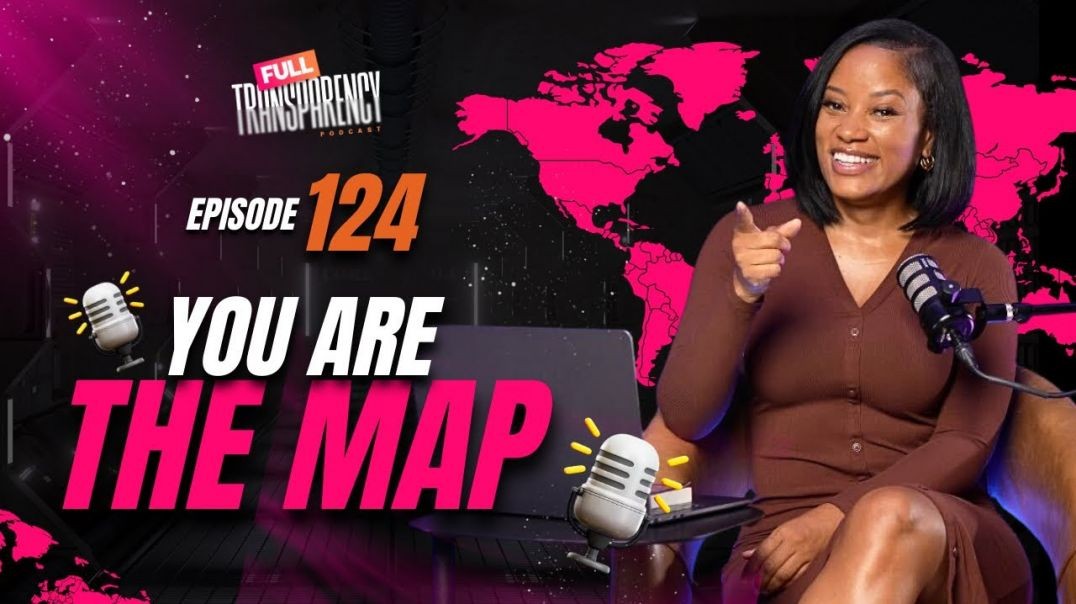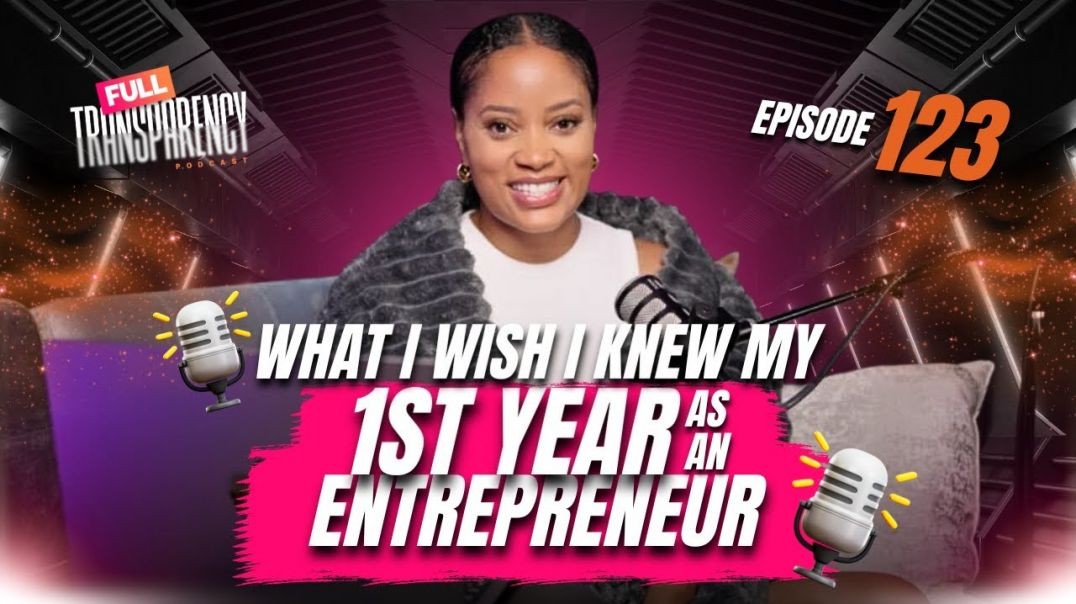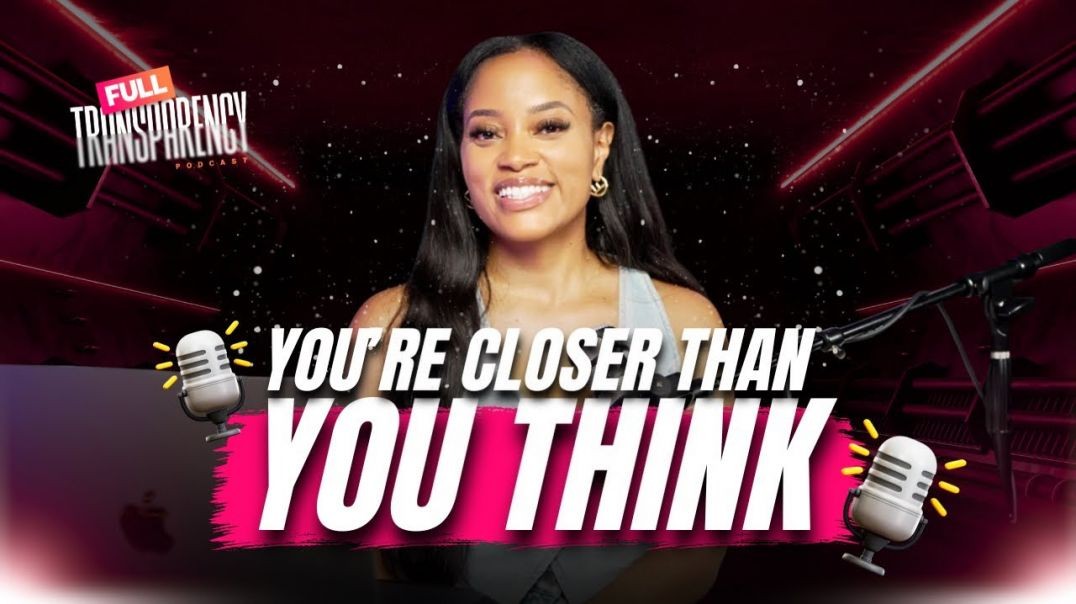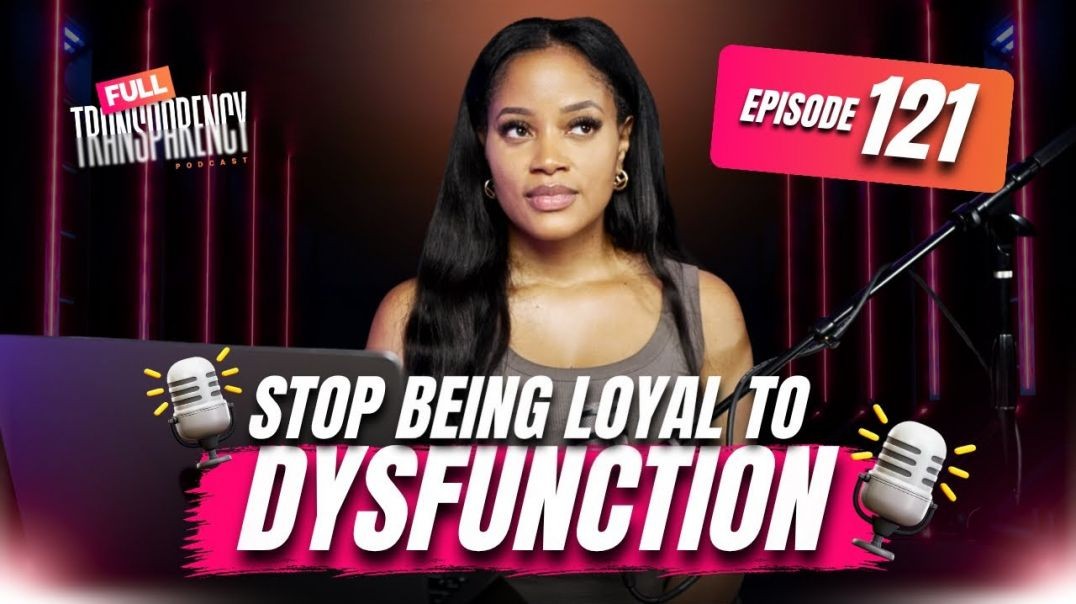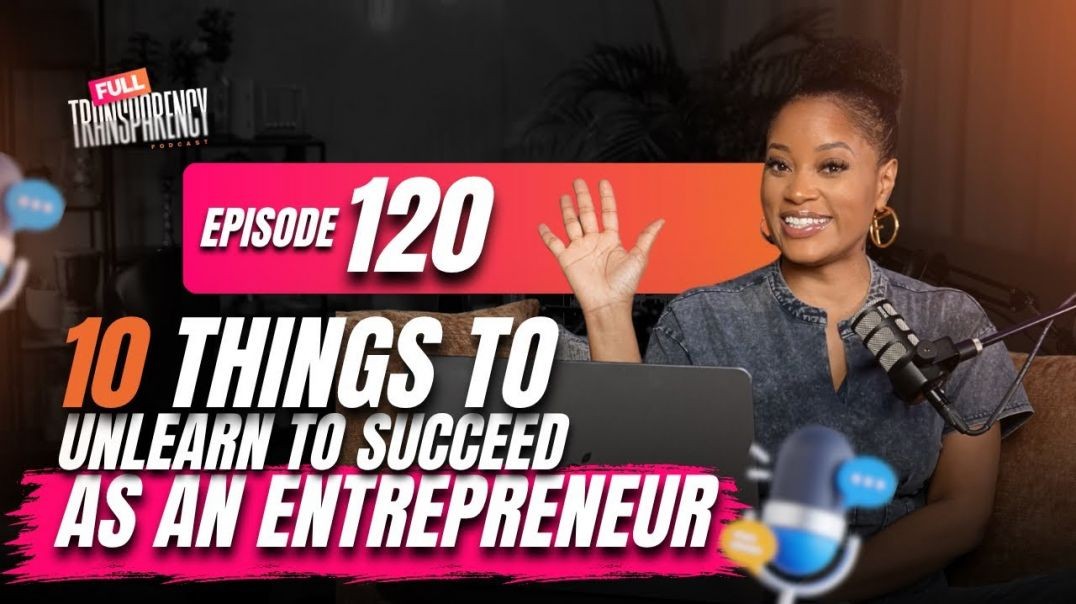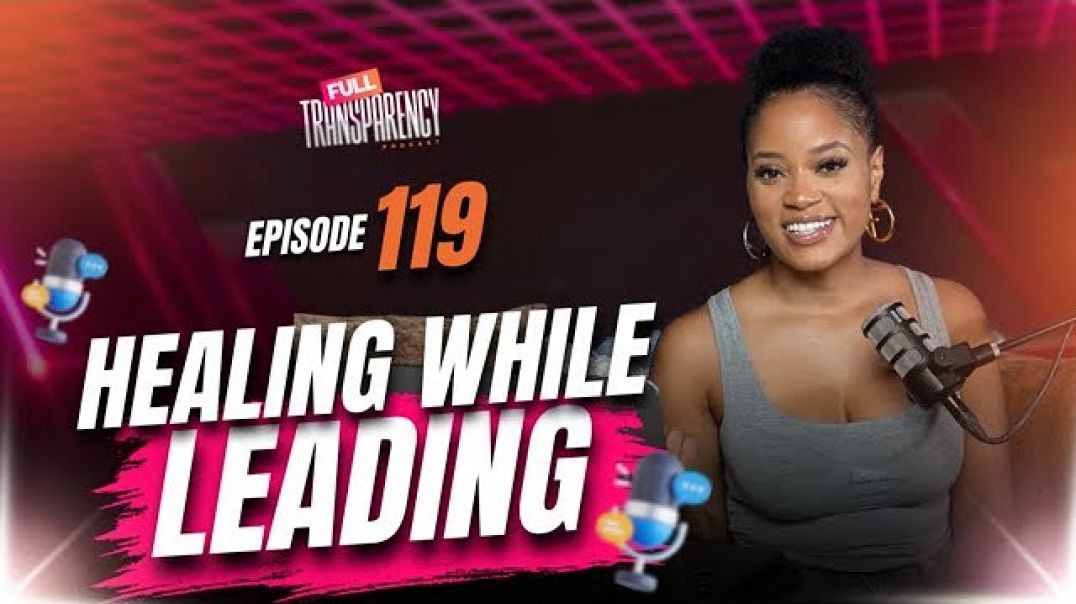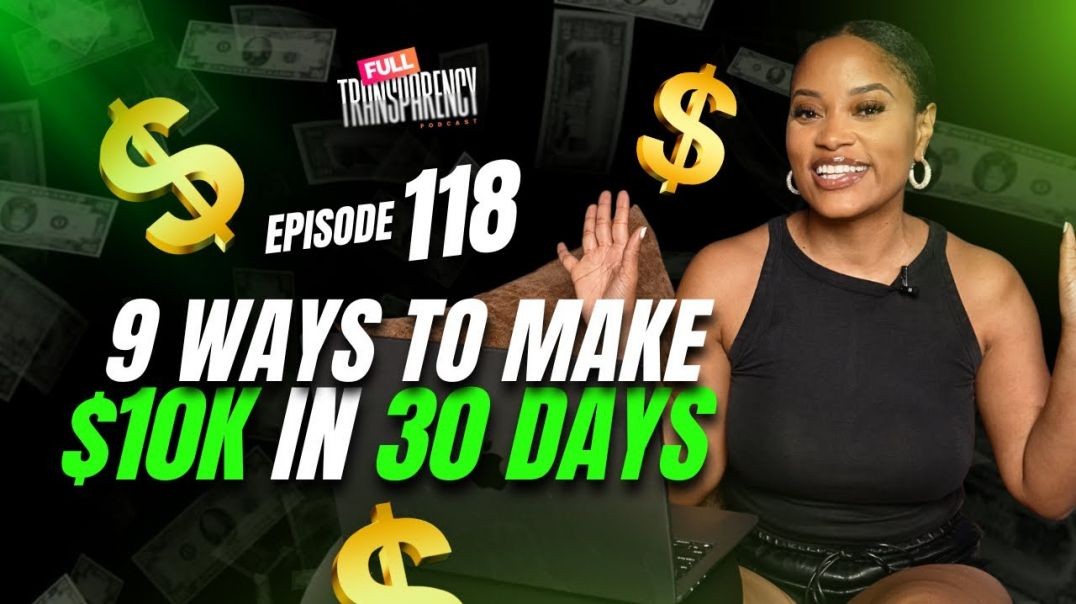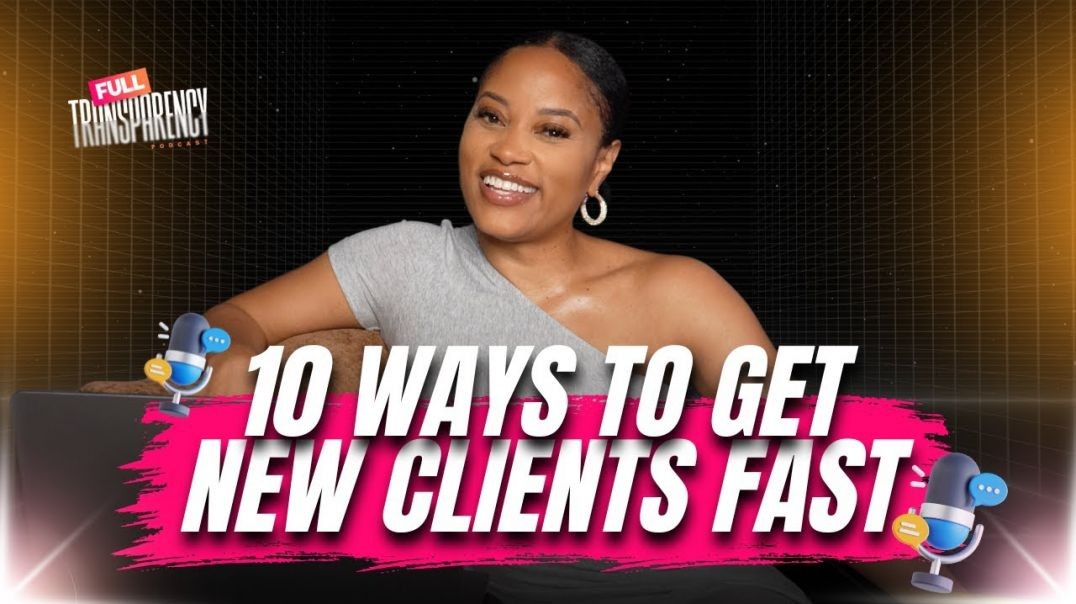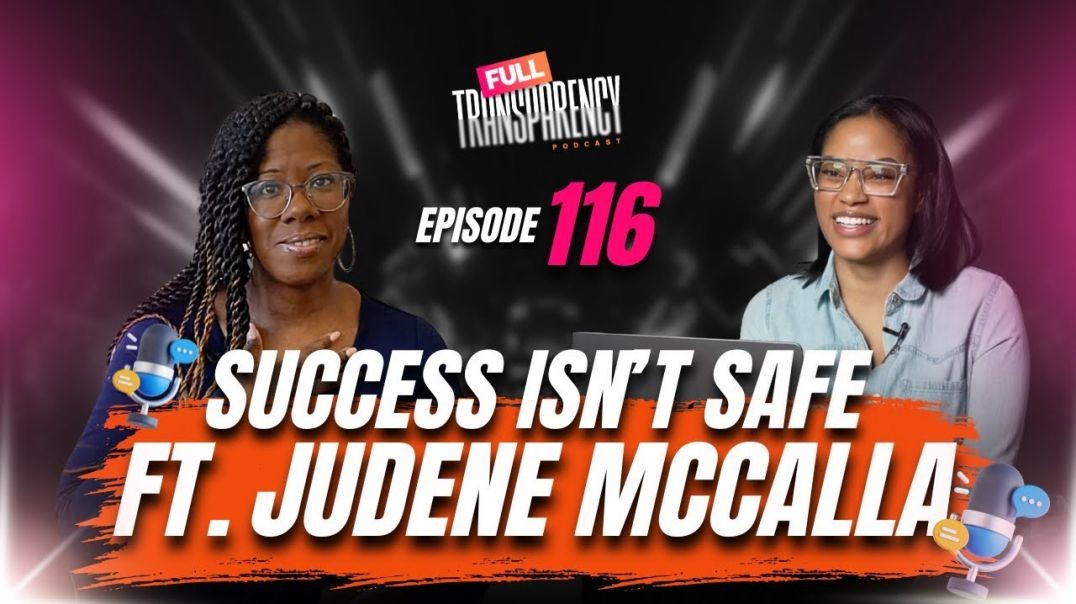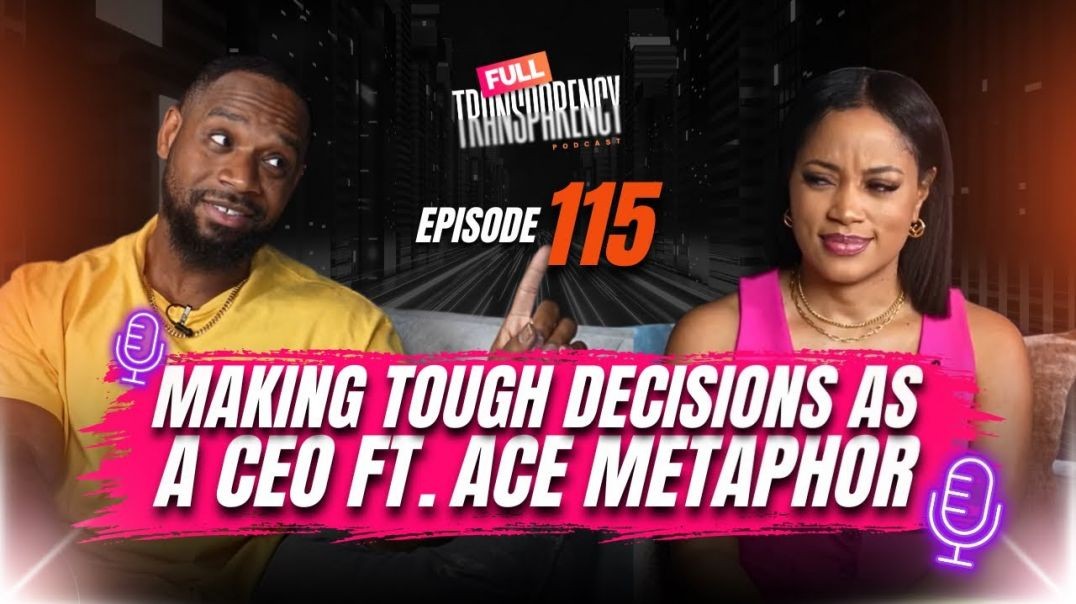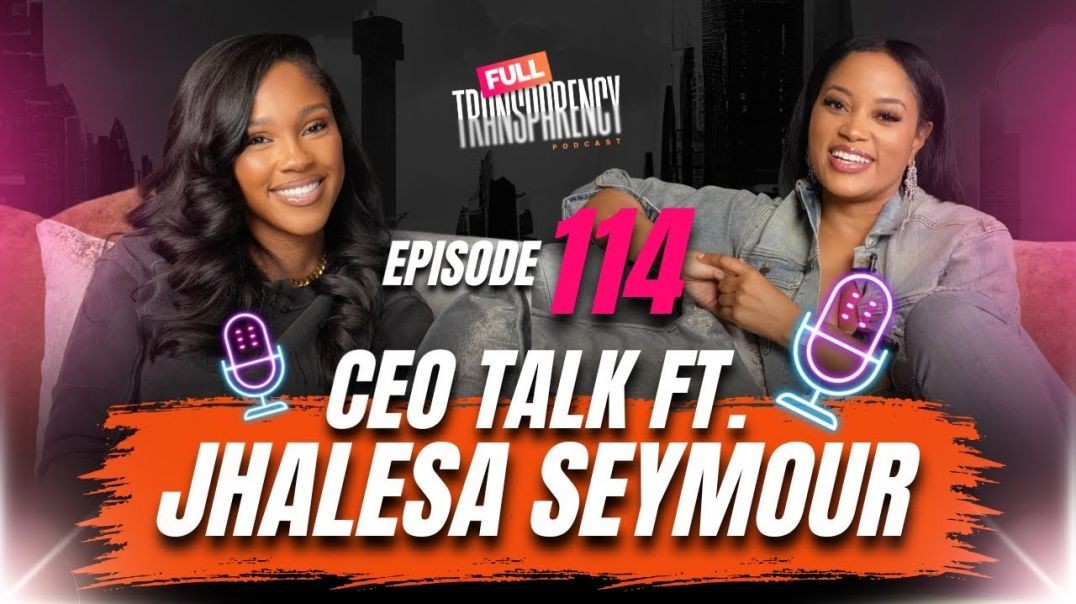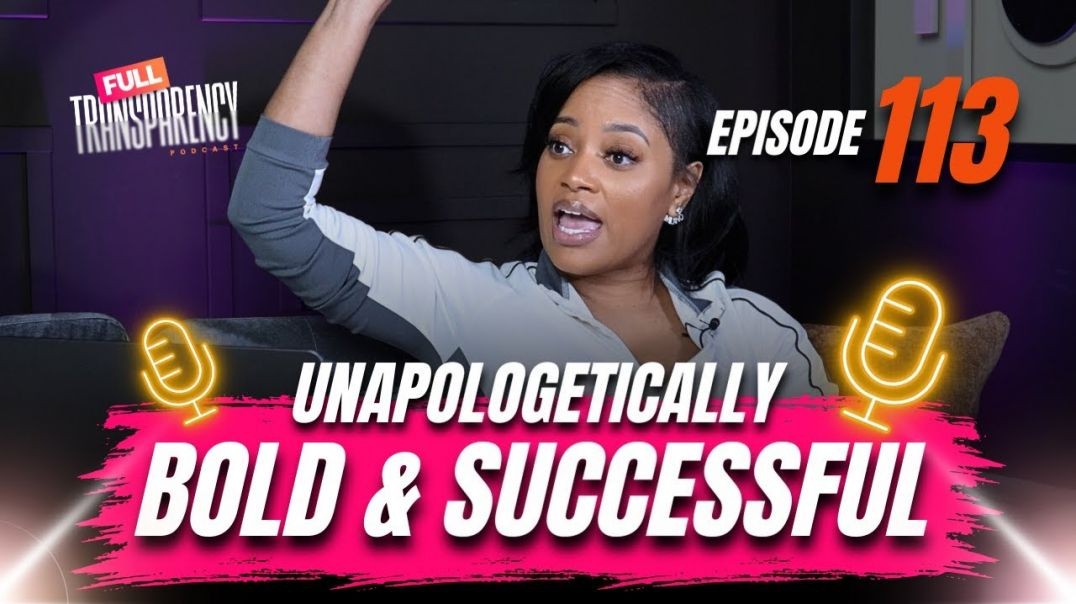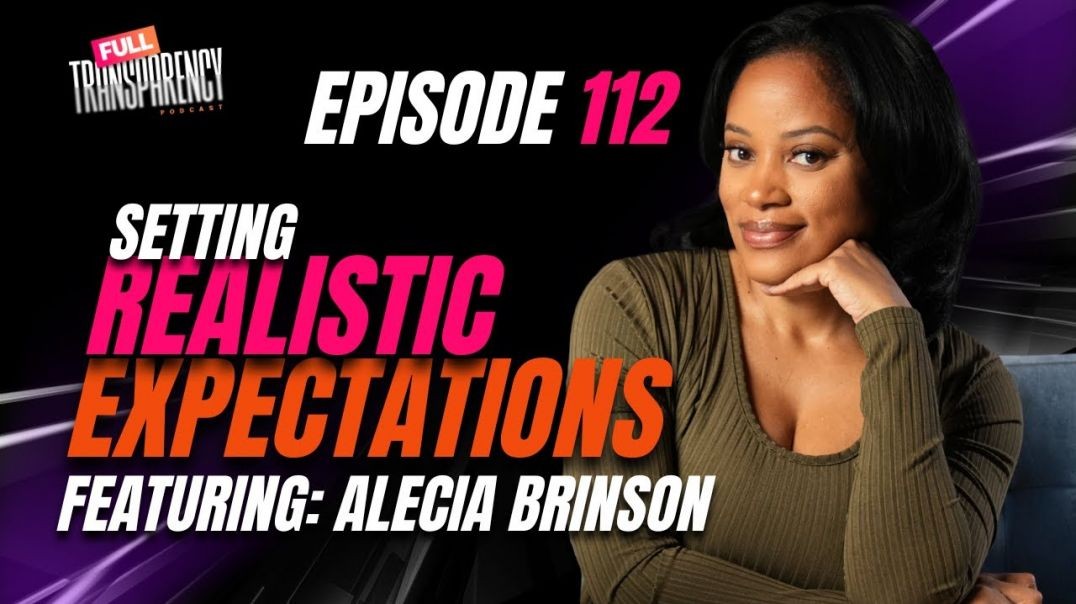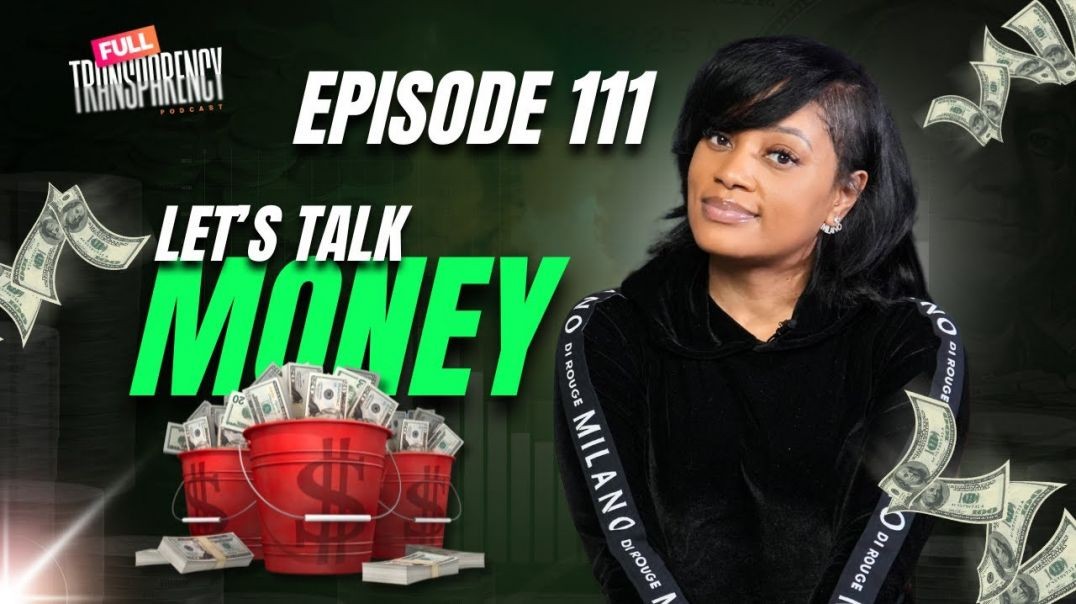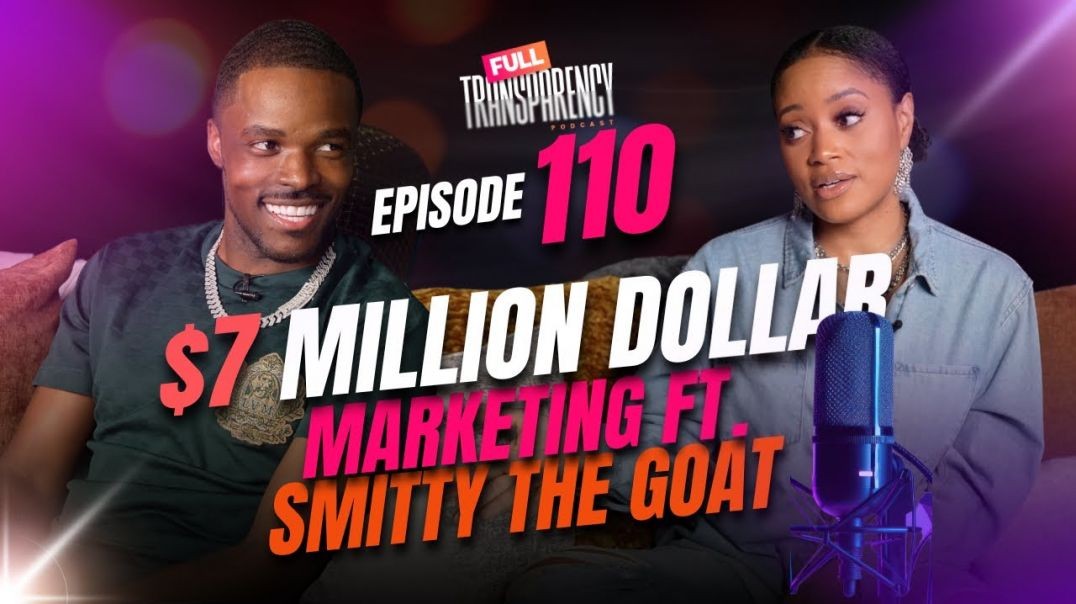
Donni Wiggins Business Coach
|Subscribers
Latest videos
You might be running a multi-million-dollar business and not even know it—because you’re playing too small.
Donni Wiggins, accomplished business coach and CEO of Actionable CEO, lays down a passionate challenge:
Identify the ways you’re shrinking your own business potential, and make the decision to play big—starting
today. Here’s a comprehensive look at her “10 Ways You’re Playing Too Small in Your Business (And Didn’t
Even Know It)” from her candid and energizing podcast episode, Full Transparency with Donni Wiggins.
Stop Negotiating With Poverty: Your Prices Are Too Low
Donni’s first wake-up call is about pricing—one of the most common ways entrepreneurs accidentally
sabotage themselves. Pricing shouldn’t be set out of fear, lack, or an urge to be “affordable.” It should reflect
the true transformation and outcomes you bring your customers. Setting low prices in hopes of getting more
clients is actually rooted in negotiating with a poverty mindset. More importantly, low prices can spark
suspicion rather than trust. If you know deep down that your prices are too low, Donni challenges you: raise
your prices by 20% for new leads and see what happens. Don’t let your subconscious do the math or decide
affordability for your client—let value be your guide.
Addicted to Planning, Allergic to Executing
Great branding, a polished website, and a myriad of strategies are useless without action. Donni points out:
Money only comes from movement. Prolonged planning is often a mask for fear or perfectionism. Rather than
endless strategizing, give yourself a strict 72-hour deadline to take meaningful action on a project or launch.
Clarity doesn’t come from more thinking—it comes from doing.
Networking Horizontally, Not Vertically
An all-too-common trap is spending time with peers who operate on the same level as you. While camaraderie
is important, growth happens when you seek mentors and community above your current level—those who
stretch and elevate you. Horizontal networking keeps you comfortable; vertical networking keeps you
challenged and growing. Seek out circles that demand you bring your A-game, and share those learnings back
with your peer group.
Hiding From Sales: Whispering Instead of Shouting
Many business owners avoid vocalizing their offers, hoping for quiet, organic sales. Donni insists: You cannot
sell in whispers and expect loud results. Confidently ask for the sale, boldly communicate your offer, and make
clear calls to action. A confused customer never buys, so don’t be a confused business owner about the value
and result you bring. Step up—confidence converts.
Fear of Niching Down and Missing Out
Serving “everybody” means you serve nobody. When you attempt to appeal to everyone, your messaging gets
watered down and fails to connect with the right client. Donni emphasizes: specialists get paid more than
generalists. Pick a niche and speak directly to its core needs and desires. When you get specific, your
brilliance shines, and your value increases.
Waiting for Validation Instead of Granting Yourself Permission
Stop waiting for someone else to crown you a leader, expert, or authority in your space. Only you can grant
yourself permission to play bigger. If you’re helping people get real results, that’s all the validation you need.
Own your brilliance and expertise without waiting for outside affirmation.
Doing $10-an-Hour Tasks Instead of Delegating
If you’re still mired in busywork, you’re bottlenecking your own growth. You need to delegate and outsource
low-value tasks—whether that’s editing videos, admin work, or other repetitive chores—to reclaim your time
for strategy and growth. Invest into your business so you can break free from the DIY trap.
Hiding From the Camera and Skipping Marketing
Personal brands especially require their founders to show up, be visible, and connect face-to-face (even if it’s
virtual). Visibility equals profitability. Don’t let insecurity about your appearance, voice, or equipment stop
you. Every flaw is an authenticity badge; what matters is your message, not your pores. Show up consistently
so people can engage and buy.
Hiding Behind the Brand Name
People buy from people, not faceless brands. In today’s market, transparency and personality matter more
than ever. Step forward as the face of your business—founder branding builds trust much quicker than a
generic corporate image. If you don’t want to step up, hire an influencer or ambassador, but give customers
someone to connect with.
Serving Without Strategy: Giving Away Too Much, Earning Too Little
There’s nothing wrong with helping people—but serving without strategy is charity, not a business. Donni
shares from personal experience: focusing only on impact and neglecting income creates burnout, not
abundance. True sustainable business is rooted in helping people and building a profitable operation. Impact
without income is a recipe for exhaustion.
Make the Decision: Play Big, Win Big
Donni closes with a powerful call to action: You are responsible for your business outcomes, your financial
status, and your future. If you’ve been playing small out of fear or habit, today is the day to go big. Seek
mentorship, invest in learning, tell the world you’re done playing small, and show up with everything you’ve
got.
-Action Steps to Play Bigger in Your Business
-Raise your prices to reflect your true value.
-Take rapid action instead of endless planning.
-Network up, not just across.
-Ask for sales clearly, confidently, and often.
-Pick a niche and speak directly to your ideal client.
-Relinquish the need for outside validation—grant yourself permission.
-Delegate low-value tasks; focus on high-impact work.
-Record and post videos, go live, and put your face behind your brand.
-Give your brand a human or ambassador the audience can connect to.
-Balance service with sound business strategy: help people, but ensure you’re paid accordingly.
No one but you decides the size of your success. Today is the day you stop hiding, stop shrinking, and start
maximizing your business potential. Go big—or risk blowing the opportunity without even realizing it.
The key to business success is not about having flawless sales skills but about crafting an irresistible offer that
deeply resonates with the customer’s needs and compels them to buy. Donni Wiggins, an experienced
business coach and entrepreneur, teaches a transformative approach to creating offers that convert
profoundly by focusing on the offer itself rather than complicated sales tactics. This article distills her
insightful framework shared in her talk, offering entrepreneurs actionable strategies to build offers that sell
themselves.
Why Your Business May Not Be Making Money
Donni begins by debunking a common misconception: it’s rarely the salesperson’s fault if a business is
struggling to sell. Instead, the problem often lies in having a weak offer. She emphasizes that success does not
hinge on mastering high-level sales jargon, overcoming objections, or deploying complicated funnels and
pressure tactics. A 10 out of 10 offer naturally generates urgency, clarity, and confidence—making it a “no-
brainer” for customers to buy without external push.
Core Elements of a High-Converting Offer
A winning offer must check several critical boxes:
-Creates urgency: Customers feel they need the offer now.
-Generates clarity: Customers understand exactly what they will get.
-Builds confidence: Customers strongly believe the offer will solve their problem and deliver their desired
outcome.
Donni urges entrepreneurs to pause and thoroughly reflect on their current flagship offer—the one that promises the most significant transformation and drives the majority of revenue. She challenges business owners to ask themselves if they would buy their own offer today and at the current price. If not, the offer likely needs revising.
The Four Pillars of an Irresistible Offer
Donni breaks down the foundation of a compelling offer into four essential components:
1. Dream Outcome
Your offer must clearly communicate the ultimate transformation or dream outcome that your customer
desperately wants. This goes beyond features or partial results—it's about the deep emotional or practical
benefits the customer seeks. For example, Donni shares a real case of a hormone replacement therapist
whose offer initially promised “75% likelihood of feeling better,” which sounded weak and uninspiring. After
reframing it to emphasize 85% of clients experienced immediate relief from debilitating symptoms, the offer
became powerful and desirable.
2. Perceived Likelihood of Achievement
Customers must believe it is highly likely the offer will deliver on its promises. This means your messaging
should build trust and demonstrate credible results that convince prospects they will achieve the dream
outcome.
3. Time Delay
Clearly communicate how quickly customers can expect results after purchasing. The faster and more
immediate the outcomes appear, the more attractive the offer becomes.
4. Effort and Sacrifice
Customers carefully weigh what they must give up—time, energy, money, lifestyle changes—to achieve the
promised results. Offers that require overwhelming sacrifice often deter prospects. Donni suggests
positioning the effort and sacrifice as reasonable and manageable, ensuring customers feel they have a fair
exchange for the transformation.
Visualizing the Customer Journey
Donni likens the offer journey to an escalator—a smooth upward path from current struggles to the desired
destination. Unlike a staircase where progress includes stops, setbacks, or dips, the escalator metaphor
implies consistent, upward momentum facilitated by the offer’s support system. This mental model helps
entrepreneurs design offers that keep clients steadily advancing toward their goals.
Five Steps to Make Your Offer a 10 out of 10
Donni outlines five practical ways to elevate your offer’s appeal and effectiveness:
Step 1: Pick One Painful Problem
Focus on one core problem your offer solves—specifically the issue that keeps your ideal customer up at night.
This targeted approach ensures your messaging touches the most urgent, pressing pain points rather than a
laundry list of generic benefits.
Step 2: Create a Clear Promise or Outcome
Define the clearest, most compelling transformation your offer delivers, avoiding vague or generic promises.
For instance, promising a marketing service that consistently delivers “five new high-ticket clients per month”
is far more potent than just “marketing help.”
Step 3: Stack Your Value Layers
Add value layers that enhance attractiveness and differentiation:
-Guarantees: Only if you can confidently promise results.
Bonuses: Extra resources, templates, onboarding calls, or complementary products that enhance the core
offer.
-Urgency: Limited seats, limited-time offers, or exclusive availability.
-Scarcity: Restrict access to only qualified customers to create exclusivity.
Step 4: Reduce Friction
Make it as easy and convenient as possible for customers to say yes and successfully engage with your offer.
Consider done-for-you services, thorough onboarding, clear video tutorials, or community support. The less
hassle and confusion, the better.
Step 5: Price Based on Value, Not Time
Set your price based on the value of the transformation you provide, not the hours spent delivering it. Use
market research and competitor analysis to find a strategic pricing sweet spot that reflects the outcome’s
worth to your customers, not just your effort.
Using AI to Optimize, Not Replace Your Thinking
Donni recognizes the power of AI tools like ChatGPT but cautions entrepreneurs to always lead with their
own thoughtful input. Use AI to refine and optimize your original ideas rather than relying on generic outputs
that lack your unique expertise and perspective. Your intellectual property and personal approach are critical
competitive advantages.
Final Thoughts and Action Steps
Donni Wiggins offers entrepreneurs a practical, actionable blueprint to craft offers that convert like crazy. By
deeply understanding the customer’s pain, delivering a clear and credible promise of transformation,
reducing barriers, and pricing strategically, businesses can dramatically improve their conversion rates and
revenue.
She invites entrepreneurs to join her mentorship community, Actionable CEO, for a deeper dive and
personalized guidance to build unstoppable offers and successful businesses.
Entrepreneurs should begin by writing down the core result of their flagship offer, analyze each component
Donni described, and then rework their offer to make it 10 out of 10. This foundational step supersedes even
optimizing funnels or marketing emails since, without a strong offer, those efforts won’t yield lasting results.
The mantra is clear: Focus on optimizing your offer first before anything else. An irresistible offer will
naturally attract customers and accelerate business growth.
This detailed framework equips entrepreneurs with the clarity and confidence to reevaluate and strengthen
their offers, ultimately bridging the gap between business goals and customer needs with a compelling
promise of transformation that converts. Donni Wiggins’ insights illuminate the essential mindset and tactics
to elevate offers and create loyal customers eager to buy.
Genuine Connection: The Heart of Real Success
Donni Wiggins, celebrated business coach and founder of Actionable CEO, delivers a compelling message on
the critical importance of authentic emotional connection—both with oneself and with others. In an era
dominated by entrepreneurship, hustle culture, and relentless productivity, Donni invites listeners of her
podcast “Full Transparency” to pause and take stock of their well-being beyond achievements.
The Danger of Superficial Interactions
Modern conversations often default to the polite, rapid-fire “How are you doing?”—a question rarely asked
with genuine intent. Donni challenges this norm, urging us to abandon autopilot responses and foster deeper
engagements. Too many people move through life without anyone taking a sincere interest in their emotional
state. “Busy and blessed” is not always the truth we live; sometimes, beneath strong exteriors, people are
suffering and longing to be seen.
Emotional Check-In: Beyond Goals
Success isn’t just about monetary gain, business growth, or personal milestones. Donni emphasizes the
necessity of “checking in” emotionally: assessing where we stand mentally, spiritually, and emotionally.
Entrepreneurs, professionals, and high performers often become masters of pushing through adversity,
masking internal struggles to maintain an image of strength. Donni advocates for acknowledgement—
recognizing moments of heavy hearts, grief, or burnout, and giving oneself permission to feel, pause, and heal.
The Power of Introspection
Rapid-paced lives rarely afford us genuine self-reflection. Donni presents a vital question: Are we ready for
honest answers when we ask or are asked “How are you?” She notes that society tends to condense the value
of human life into accomplishments, neglecting happiness and mental stability. Over-functioning, constant
busy-ness, and even self-sacrifice can sometimes serve as distractions from confronting difficult emotions.
Healing Begins With Honesty
At the core of Donni’s message is transparency—with oneself first. Healing, renewal, and rebuilding can only
start when we admit what we’re struggling with. She stresses that we don’t have to face our truths from a
place of sadness or self-condemnation; instead, honesty can be a gateway to healing when approached with
love and without judgment.
Ten Questions for Self-Reflection
Donni offers ten transformative prompts to guide personal introspection and healing:
1. What’s consuming my emotional energy right now?
2. What emotions am I avoiding, suppressing, or struggling to express?
3. What parts of me feel heavy, and what parts feel light?
4. Am I operating from genuine alignment—or have I fallen into autopilot?
5. Where in my life do I feel most authentic, or least like myself?
6. Who or what do I need to lovingly release, even if it’s just mentally?
7. What am I grieving that I haven’t fully acknowledged?
8. What’s one thing I can do this week to reconnect with myself?
9. What version of myself am I outgrowing—and who am I becoming?
10. If I sat across from myself, what would I say: grace or criticism?
Each question encourages real introspective work, not just surface-level consideration. These prompts help
individuals identify emotional drains, confront avoided feelings, and celebrate small joys—demonstrating that
true growth starts with understanding and accepting ourselves.
Tackling Avoidance and Seeking Support
Avoided emotions don’t simply disappear; instead, they manifest as fatigue, irritability, or disconnection.
Donni invites listeners to confront their numbness, challenge limiting beliefs from society or close
relationships, and understand that true connection can flourish only when vulnerability is allowed.
Grieving and Moving Forward
Grief isn’t just about loss from death—it’s the emotional residue of missed opportunities, changed identities,
or broken dreams. Donni urges us to honor unacknowledged grief, recognizing that feeling “off” might signal
something deeper to address. Healing comes from naming emotions and granting ourselves permission to
experience them, whether through therapy, journaling, prayer, or supportive community.
Celebrating Small Wins
The path back to oneself isn’t dramatic. Often, it starts with one small promise kept—taking a walk, drinking
water, committing an hour to a neglected passion, or refusing to share pain with those unable to empathize.
Self-compassion and celebrating little victories lay the foundation for greater healing.
The Reality and Temporality of Struggle
Everyone faces grief, failure, heartbreak, and exhaustion—these are universal experiences. Donni affirms that
shame has no place in authentic living. Importantly, she reminds us that seasons of struggle do not last
forever. Learning and growth come from navigating difficult times, equipping us for future challenges.
Rediscovering Your True Self
It’s easy to feel lost—swallowed by roles as parent, friend, leader, or entrepreneur. Yet, the core self persists
beneath burdens. Donni encourages listeners to seek support, engage in candid reflection, and remember
that the world needs each of us—authentically engaged, resilient, and transparent.
A Call to Mentorship and Community
Every episode concludes with an invitation to join her mentorship community, Actionable CEO. Donni’s
commitment extends beyond business success; she fosters personal development, emotional wellness, and a
network of genuine support. Listeners are offered a seven-day free trial to discover if the Actionable CEO
space is their next step in personal and professional growth.
Final Reflection and Invitation
Donni closes with a challenge: answer truthfully, “How am I really doing now?” The journey to healing starts
with one honest answer, one small promise, and the understanding that none of us are alone. The world needs
each of us—whole, heard, and ready to rebuild.
For more actionable prompts, mentorship in personal and professional growth, and a supportive community,
consider joining Donni Wiggins and Actionable CEO.
Donni Wiggins’ powerful talk “Lock In: Stop Playing, Start Progressing” is a wake-up call for entrepreneurs and
personal achievers. She confronts the cycle of endless learning and urges decisive, focused action—a call to
step out of comfort and distraction and get “locked in” on goals and vision.
The Trap of Perpetual Preparation
Wiggins opens by questioning why so many people keep playing with their potential. She notes that many
declare each year or season as their time, yet fail to make tangible progress. The cycle typically involves
constant learning—signing up for new courses, podcasts, and conferences—but little execution. She
emphasizes: “Knowing isn’t your problem. Execution is.”
Distraction: The Modern Obstacle
Modern life is plagued by distractions, Wiggins argues. Notifications, social media, and even self-doubt act as
a constant pull away from true productivity. She shares her experience of setting her phone to “Do Not
Disturb,” highlighting the necessity of eliminating distractions rather than managing them. Every time
procrastination or negative thoughts delay action, distraction wins.
Being “Locked In”: What It Means
Wiggins draws a distinct line between motivation and being “locked in.” Locked-in individuals don’t rely on
motivational boosts to get things done—they depend on discipline and responsibility. When you’re locked in:
You aren’t emotionally hijacked by failure; instead, failure becomes a data point to improve your strategy.
External opinions lose their power; your belief in your mission is uncompromising.
You cease reacting to critics or competitors, focusing only on your personal race.
Excuses become unacceptable—you execute without waiting for perfect conditions.
The Power of Consistency
She underlines that consistent action builds credibility and authority. Sticking to your plan and
demonstrating your expertise repeatedly makes others recognize you as a leader in your space. When you’re locked in, people sense your seriousness and are drawn by your energy. This “locked in” state is magnetic and
contagious—it rallies the right collaborators around you.
Actionable Steps To “Lock In”
Wiggins details practical steps:
-Define Non-Negotiables: Identify 1–3 must-achieve goals, and establish daily actions aligned with those
outcomes. These are not optional or scheduled for convenience—they’re obligations.
-Eliminate Distractions: Turn off notifications, set boundaries, and replace habits that undermine your focus.
-Follow a Winner’s Routine: Success comes from repetitive, healthy behaviors—morning routines, healthy
decisions, structured days.
-Make Vision Visible: Keep your goals front and center—write them out, post them everywhere, repeat daily.
-Move With Discipline: Discipline, action-taking, and self-investment separate successful people from those
who only dream.
Locking In Is Not Perfection
Wiggins clarifies that being locked in doesn’t mean you’re immune to fatigue, sadness, or doubt. Rather, it
means you do the work anyway—embracing the imperfect path and rejecting excuses. Locked-in people see
setbacks, depression, or hardship as obstacles to be worked through, not defeaters. “I have failed so many
times... but I never fold,” she states.
Results Reveal Commitment
Ultimately, she challenges listeners to assess: Are they truly locked in or just going through the motions? Results—not busyness—serve as the evidence.
The Final Challenge
The talk concludes with a call to deliberate self-accountability. Wiggins asks listeners to reflect deeply: “Am I
really locked in for something big, or am I winging it?” She encourages everyone to type “locked in” in the
comments when ready, to signal true commitment—not to her, but to themselves.
Donni Wiggins’ message is clear: The only barrier to being locked in is oneself. It’s a challenge to drop excuses,
focus fiercely, execute daily, and refuse to fold regardless of circumstance. By fostering laser-sharp focus,
discipline, and actionable habits, anyone can generate unstoppable forward momentum towards their goals.
Donni Wiggins provides a masterclass analysis of Alex Hormozi’s record-shattering $105 million book launch,
distilling actionable lessons for entrepreneurs across digital and physical industries. Here is a detailed article
based on her talk, exploring high-impact takeaways and strategies for business leaders.
Alex Hormozi’s $105 Million Book Launch: What Entrepreneurs Must Learn
Alex Hormozi’s latest book launch broke records and rewrote the playbook for entrepreneurial success,
generating over $105 million in sales in under 24 hours and making waves across business circles and social
media alike. Donni Wiggins, seasoned business strategist and host of Full Transparency, delivers a deep-dive
into this historic launch, highlighting the actionable principles behind its phenomenal success.
Redefining Possibility for Entrepreneurs
Hormozi’s feat wasn’t just about raking in unprecedented revenue—it shattered what many believed possible.
Through a meticulously orchestrated live launch, he proved that with the right combination of strategy,
storytelling, and value-stacking, even the loftiest goals are within reach for ambitious entrepreneurs. Wiggins
emphasizes that the ceiling for business growth is more glass than concrete—ready to be shattered by those
brave enough to rethink their limitations.
The Power of Free: Leveraging Generosity as a Growth Tool
Central to Hormozi’s strategy was his relentless commitment to giving away value for free. From years of
high-value, no-strings-attached emails to live-stream educational sessions and the gifting of digital book
copies, Hormozi activated the principle that “free” isn’t a loss—it's leverage. Wiggins suggests reverse
engineering successful campaigns to understand structured generosity, reminding entrepreneurs that
fostering trust and goodwill often precedes massive sales. Giving away services or products strategically—
such as in exchange for testimonials—can drive organic growth and establish credibility.
Irresistible Offer Stacking: Why Great Offers Sell Themselves
Hormozi’s $6,000 package offer, featuring 200 book copies and 12 “playbooks” (signature frameworks),
proved that true value lies in crafting irresistible deals rather than pushing single items. Buyers were
incentivized to distribute knowledge within their communities, amplifying impact and reach. Wiggins
challenges entrepreneurs to audit their current offerings, urging them to bundle value so compellingly that
prospects feel foolish saying “no”.
Movement-Based Marketing: Creating History and Community
A key element of the launch was movement marketing—making every participant feel they were joining a
history-making moment. Hormozi created a tribe of contributors who could proudly declare their role in
setting a Guinness World Record. Wiggins notes that people yearn to belong and be acknowledged; launching
with a clear mission transforms ordinary customers into passionate advocates.
High-Level Execution and Planning: The Blueprint of Excellence
The launch modelled premium execution and planning, accomplished in just six weeks by leveraging proven
frameworks, specialized team expertise, and laser-focused urgency. Wiggins recounts direct insights from a
key team member, illustrating that success at scale is rarely improvised—it is methodically engineered. She
cautions against lingering too long in planning mode and advocates for focused, iterative action.
Brand Trust and Thought Leadership: Building Relationship Equity
Hormozi’s ongoing content strategy builds deep trust, not just by discussing business, but by addressing
broader topics like relationships and trending issues relevant to his audience. Wiggins observes that thought
leadership and authentic engagement drive people to buy—not just for products, but for trusted relationships
with brands and personalities. Entrepreneurs must consistently establish themselves as authorities beyond
transactional selling.
Education as a Conversion Tool: The Teaching Brand
From pre-launch emails to immersive live streams and follow-up content, Hormozi’s approach demonstrates
the power of education in converting followers into buyers—then buyers into believers. Even outside niches
like coaching or training, every entrepreneur can educate their audience about the unique value and story
behind their products. Wiggins shares case studies from apparel brands that use education (demonstrating fit,
quality, manufacturing details) to justify premium pricing and drive sales.
Practical Takeaways
- Reverse Engineer Success: Analyze brands and launches at the level you aspire to reach and extract scalable
principles for your own strategy.
- Incorporate Generosity: Use structured “free” offers to build trust, collect testimonials, and expand reach—
treat these as investments, not losses.
- Stack Offers, Not Just Products:** Bundle knowledge, bonuses, or experiences so that your offer becomes an
obvious choice.
- Create Movements: Let buyers join a cause or mission, fostering excitement and long-term brand memory.
- Prioritize Trust: Don’t just sell—educate, relate, and build relationship capital for sustained growth.
Hormozi’s record-breaking launch serves as a template for modern entrepreneurship—where strategy,
mission, and generosity fuel not just profits but movements. As Wiggins concludes, don’t just be a bystander
to history—learn from it, model it, and apply the blueprint to elevate sales, branding, and leadership.
In a powerful episode of "Full Transparency," renowned business coach and mentor Donni Wiggins
explores a transformative topic—the power of doing the inner work. Drawing from her own journey and
the insights of the book The Map by David Diane Fiser, Donni offers a candid, introspective roadmap
toward personal clarity, self-awareness, and lasting fulfillment.
The Journey Inward: Why Inner Work Matters
If you've followed Donni, you already know her as an advocate for deep introspection and self-
development, both in business and in life. According to Donni, doing the inner work is about more than just
personal improvement—it's about reclaiming your own "GPS" and steering your life from within rather
than following maps drawn by others.
Most people, Donni observes, navigate life based on scripts and expectations imposed by family, teachers,
friends, or even societal norms. But what if the real map for your journey—the one that brings clarity and
peace rather than chaos—was already inside you?
Radical Internal Self-Awareness
At the heart of Donni’s philosophy is "radical internal self-awareness." This means deeply accepting your
role in your outcomes, understanding your true needs, and making decisions that are authentically
aligned. It's not about blaming the past or waiting for the world’s approval—it's about trusting your voice
and desires.
The Map Is You: Reconnecting to Your Core
The Map promotes the radical idea that self-knowledge isn't something you find out in the world, but
something you remember from within. We were all born knowing how to communicate our needs and
desires, unburdened by outside programming. But as we grow, parents, teachers, and society begin to
overlay their expectations, pushing us off our natural path. Donni encourages listeners to pause and
reconnect with that original self—to remember and realign with the parts of us that have been forgotten
or buried.
Five Signs You Need Inner Work
Donni outlines five clear signs that indicate it's time to focus on your inner work:
1. Constant Triggers: You're easily upset or bothered, often due to unprocessed emotions running your life.
2. Busy but Unfulfilled: Productivity has replaced purpose, leaving you unsatisfied no matter how much you
do.
3. Chronic External Validation Seeking: You look to others for approval because you don't trust your own inner voice.
4. A Life Full of ‘Shoulds’: Your motivations and decisions are based on others’ opinions, not your authentic
desires.
5. Fear of Stillness: Silence and solitude make you uncomfortable because they force you to face unresolved
parts of yourself.
Tools for Doing the Inner Work
Donni offers five practical tools to begin and sustain your introspective journey:
1. Stillness: Practice daily silence—even five or ten minutes can help you reconnect with yourself.
2. Journaling: Use prompts like "What am I pretending not to know?" or "Is this choice aligned with who I'm
becoming?" to unearth truths and gain clarity.
3. Breath Work & Meditation: Mindful breathing can realign your body and spirit, helping you reset energy
and handle challenges from a calm place.
4. Mirror Work: Stand in front of a mirror, look into your own eyes, and speak positive affirmations,
reinforcing belief in your worth and power.
5. Shadow Work: Acknowledge and explore your darkest traits—not to shame yourself, but to identify areas
needing healing and growth, such as jealousy, insecurity, or control issues.
The Transformational Payoff
By committing to these practices, Donni promises profound shifts:
Stronger Standards and Boundaries: You'll know what you will and won’t accept.
No More Outsourcing Your Power: Approval and validation come from within.
Becoming Your Own GPS: Decisions align with your authentic self, not others' expectations.
Healthier Relationships: You stop expecting others to heal or complete you.
Business Growth Reflecting Self-Awareness: You attract opportunities and clients that truly align with
your values.
Peace as Your Baseline: Happiness and love become the norm, with chaos and negativity becoming the
exception.
Remember: You’re Not Broken—You’re Buried
Donni offers a liberating truth: you aren’t broken, just buried. Your truest self is beneath layers of external
expectations and old programming. Doing the inner work is about unburying who you truly are, reclaiming
your voice, and designing a life aligned with your real purpose.
Take Action
Donni encourages everyone to prioritize silence, self-reflection, and mindful practices. Start small: pick
one tool and commit to it daily. For those looking for support and structure, she invites listeners to join her
mentorship community, Actionable CEO, focused on personal, professional, and financial growth.
This journey isn’t a 30-day challenge—it’s a lifelong practice. But as Donni affirms, the rewards of inner work—clarity, peace, love, and fulfillment—are well worth the effort.
Donni Wiggins, a seasoned business coach and entrepreneur, shares a wealth of hard-earned wisdom in her
candid talk about the crucial lessons she wishes she had known during her first year as a CEO. Her insights
offer a raw, transparent roadmap for aspiring entrepreneurs navigating the challenging early days of building
a business.
Mindset Is Foundational
Wiggins emphasizes that mindset is the cornerstone of entrepreneurial success. She highlights the
importance of serious personal development, including changing the way one speaks to oneself and
distancing from influences that foster average thinking. Entrepreneurs must embrace that success is never
“normal” and overcome the myths and fears that hold them back, especially the fear of failure. Failure, she
explains, is merely data—a comma, not a period—that informs adjustments and growth rather than defining
one’s identity.
Reject Overnight Success and Embrace the Process
She debunks the myth of overnight success, reminding entrepreneurs that every success story involves long
periods of iteration, learning, and perseverance. Waiting for perfect timing is futile—starting when you’re not
fully ready is necessary because clarity and success come through action, not waiting. Wiggins candidly
shares her own decades-long entrepreneurial journey, underscoring that even after many years, she is still
figuring things out.
Focus on One Clear Offer
One of her most critical pieces of advice is to focus on a single product or service and execute it excellently
before diversifying. Trying to multitask with several offers leads to confusion and mediocre results. Success
requires clarity and excellence in one area—knowing the problem you solve, the people you serve, the
promise you make, and the pathway to deliver that promise effectively. Simplicity scales, while confusion
repels.
Systems Over Hustle
Wiggins advocates for implementing systems early—even if that means being the system yourself at first.
Systems are the processes that consistently drive revenue, generate leads, and keep customers satisfied. She
gives a practical example from her early coaching days where daily Facebook posts, personal DMs, and
meticulous scheduling were her entire system until she could build a team. Investing back into these systems
gradually is vital, but she also stresses the importance of not quitting your day job too soon, as it can be your
first investor.
Financial Discipline and Resourcefulness
A striking part of her talk involves auditing personal expenses to find money to invest back into the business.
She challenges entrepreneurs to scrutinize their spending on non-essentials—like frequent outings or
subscriptions—and reallocate funds towards business growth. Wiggins shares a personal story about
returning a leased car to free up $2,000 a month, which she redirected to hiring offshore support, boosting
her business efficiency.
Avoid Common Time Wasters
Wiggins warns against spending excessive time perfecting a website, endlessly researching, waiting for
validation, or obsessing over follower counts rather than focusing on real customers and sales. Building a
large social media following is not the point; converting a small number of strong customers is more
impactful. She reminds listeners that even major brands don’t rely on followers as sales drivers.
Stay in Your Own Lane
She encourages entrepreneurs to stop comparing themselves to others whose resources or journeys differ
dramatically. Everyone’s path is unique, and comparison often leads to discouragement. She urges
maintaining ethical and focused hustle, knowing your turn and opportunity come daily through persistent
effort.
In Summary: Key Year-One Commitments
Develop a strong, growth-oriented mindset
Stop chasing perfection and start acting now
Focus on one clear, valuable offer and deliver it excellently
Build and refine systems to replace hustle
Be financially disciplined, reallocating funds to business essentials
Avoid distractions like endless tweaks, over-research, and follower obsession
Seek mentorship and accountability to stay on track
Embrace your unique journey without unhealthy comparisons
Donni Wiggins’ transparent and practical guidance provides a blueprint that can save new entrepreneurs
time, energy, and frustration. Success in year one is about clarity, focus, systems, and relentless action—not
perfection or imitation. Her encouragement to embrace the messiness of early entrepreneurship is both
empowering and realistic, promising that with the right mindset and strategies, profound growth and impact
are within reach.
Have you ever looked at your journey and wondered, "Why am I still here? I should be so much further along"?
If that’s you, you’re not alone. Many entrepreneurs and ambitious people find themselves second-guessing
their progress, feeling stuck, and contemplating quitting just as they reach the brink of their breakthrough.
But the truth is—you are likely much further along than you think.
I've seen it time and time again in my mentorship community, Actionable CEO, working daily with
entrepreneurs striving for professional, personal, and financial growth. Too many quit just before a major win
because their sense of progress is clouded by self-doubt and limiting beliefs. But just as in that famous meme
of the person digging only to quit inches from the gold, persistence is often all that stands between you and
your next level.
Below, I share 10 signs that you’re actually closer than you think to your goals. Recognizing these markers will
remind you of your growth and push you to keep moving forward.
1. You’re Making Clearer, Faster Decisions
In the early stages, you might feel unsure about every step, teetering between choices. However, as you
progress, decision-making becomes swifter and clearer. You notice things start to click—choices feel smarter
and come with more confidence. If you're finding yourself able to decide and act without excessive second-
guessing, that's a serious milestone.
2. You No Longer Tolerate Chaos or Toxic People
Personal growth means you begin to set boundaries and reject consistently toxic environments. Success is
attracted to clarity, organization, and well-defined values—not chaos. If you're standing firm on your core
values and saying no to drama and negativity, you're evolving.
3. You’re Consistent Even Without Motivation
Average people stop when motivation dips, but you keep going. Even on the tough days, you show up, do the
work, and put in the reps because you realize consistency, not fleeting inspiration, is the true driver of results.
4. Your Conversations—and Who Seeks Your Advice—Are Changing
People start coming to you for your thoughts and insights, recognizing you as a resource or thought leader.
Even if it doesn’t feel like it, your expertise is being noticed. The fact that others seek your opinion is a clear
sign that you’ve built credibility and visibility.
5. You’re Solving Higher-Level Problems
What once started as a side hobby or small consultations evolves into clients trusting you with advanced
tasks. Suddenly, you’re not just generating business ideas; you’re helping structure businesses, advise on
systems, and grow revenue models. Each step forward elevates both your expertise and your earning
potential.
6. You Feel Uncomfortable in Old Environments
Environments and circles where you once felt comfortable now seem limiting. You may feel you have too much
to lose to entertain certain habits or people. The evidence of this is that you find yourself standing out and not
wanting to shrink yourself to fit in.
7. You’re Investing in Learning and Development
Progress brings self-awareness—a realization that you’ve grown as far as you can on your own. You begin
investing in courses, mentorship, and development opportunities, recognizing that these are catalysts for the
next leap.
8. You Catch Limiting Beliefs in Real Time
When old, unhelpful thoughts arise—"I’m not good enough," "The market is too crowded," or "No one will pay
me more"—you notice and correct them immediately. Reframing negative beliefs with abundant, empowered
thinking marks genuine inner progress.
9. You Notice Small External Wins
Growth sometimes shows subtly. Your email list grows, you get more DMs and comments, someone pays you
via Stripe, or you get increased engagement. These external cues may seem small, but they are undeniable
evidence of real, measurable progress.
10. You’re Still Here—You Haven’t Quit
This alone is huge. Every successful business and entrepreneur has had a slow, invisible season. Sticking with it
means you’re in the game, and most people quit right before their big break. The fact that you’re still here
means you’re pushing closer to momentum than you realize.
What To Do When Progress Feels Slow
When you find yourself doubting your success or progress, there are five practices I recommend:
Journal: Writing down your thoughts and tracking your actions helps reveal growth over time, both in mindset
and measurable behaviors.
Distance Yourself from Distractions: Whether it’s binge-watching TV or toxic relationships, step away from
anything holding you back.
Audit Your Circle: Surround yourself with builders, not complainers. Compartmentalize those who cannot
contribute positively to your journey.
Turn Anxiety into a Plan: Break big tasks and overwhelm down into the next clear step. Focus only on what
you need to do right now.
Seek Mentorship: Get in environments filled with the right energy, mindsets, and accountability. My
community, Actionable CEO, is built for this reason.
Final Thoughts
It’s working, and you are closer than you think. Don’t let discouragement or the slow build of progress
convince you otherwise. Every business, every dream, every achievement has its silent and slow seasons. If
you quit now, you’ll only have to start over—perhaps seeing someone else succeed with the idea you
abandoned. So write it down: "It’s working and I’m closer than I think."
Keep going. Your breakthrough is closer than you realize.
Break Up With Dysfunction: Lessons From Donni Wiggins on Living Fully Aligned
Do you truly feel stuck, or is it possible you’ve simply grown loyal to your own dysfunction? According to
Donni Wiggins—acclaimed business coach, personal mentor, and founder of the Actionable CEO community
—most of us are not as stuck as we think we are. Instead, we’ve merely normalized chaos and made ourselves
comfortable in the very conditions that keep us small. In a particularly transformative episode of her podcast
Full Transparency, Donni lays out the case for breaking up with dysfunction once and for all, and stepping into
an aligned, evolved version of yourself.
Donni’s message is clear from the start: dysfunction is not your destiny, and it should never be your normal.
She challenges listeners to examine the parts of their lives—work, friendships, relationships, even self-image
—where they are quietly settling. She confesses her own struggles: the times she procrastinated in business,
the friendships she maintained out of guilt, and the ways she once convinced herself that disrespect or lack of
support from others was “just their love language.” These excuses, Donni notes, are just trendy buzzwords
that serve to disguise persistent dysfunction. “We have to get uncomfortable with chaos,” Donni insists. We
must unlearn the acceptance of toxic environments and stop mistaking trauma and constant stress for a
natural part of life.
Why do so many persist in dysfunctional circumstances? For many, familiarity is easier than alignment. We
stay where we feel comfortable, even if that comfort comes at the price of our well-being, finances, and future
goals. Donni points out that we sometimes find ourselves in new, healthier spaces and then self-sabotage,
simply because the peace feels foreign. The chaos of the past, though painful, is what we know—and so we
cling to it.
She urges: your loyalty does not belong to dysfunction or to the comfort of the past. Instead, you owe your
loyalty to your dreams and your future self. If you continually invest energy in toxic circumstances, you will
never become the person you’re meant to be. Whether it’s a business model that has outlived its era, a
friendship maintained only out of nostalgia, or a relationship that leaves you feeling small, Donni urges the
honest reckoning: it’s time to move on.
Donni unpacks how this dysfunction manifests in five core ways, especially for entrepreneurs. First, toxic
relationships can drain your energy—whether by shrinking yourself to make others comfortable, giving away
your work for free, or holding on to friends out of guilt. These relationships often act as mirrors, reflecting the
discomfort others feel about your growth. Second, she discusses the obsession with chaos and the myth that
success only comes from last-minute pressure. Procrastination, stress, and overwhelm are often glamorized,
but in truth, they only perpetuate a cycle of dysfunction, not progress.
A third area Donni challenges is the scarcity mindset, which convinces entrepreneurs to start and stay small.
She calls out the tendency to charge less than your worth, simply because it feels “safer” or more “humble.”
But playing small does not serve anyone, she says. “Playing small isn’t humility. It’s harmful to your process.”
Your impact is always significant, no matter where you start.
The fourth type of dysfunction she tackles is an attachment to your old identity. Too many people remain
tethered to a bygone version of themselves: the underdog, the hustler, the person who was “just trying.”
Donni is direct: if you have made the leap into entrepreneurship, you are a CEO—not someone who is “trying”
to become one. This also extends to ideas about appearance; many hold back from making moves in their
business or life because they don’t like what they see in the mirror. Yet, Donni reminds us, success is not
contingent on a perfect image.
Finally, Donni focuses on the issue of discipline. Inconsistency, she argues, is not mere laziness—it's a form of
self-abandonment. Every time you fail to show up for your goals, you essentially abandon yourself and all you
claim to value. Consistent effort is the only way to attain consistent results, especially in building a business
or pursuing a life of purpose.
Donni explores why people hold onto dysfunction so tightly. Often, dysfunction disguises itself as comfort.
Many are more afraid of the unknown than of repeating the same negative cycles. For some, the chaos even
becomes addictive—a source of adrenaline that they mistake for “aliveness.” In many cases, guilt keeps people
stuck, as they conflate leaving a bad situation with disloyalty. Donni’s call is to reframe this: true loyalty is to
your growth—not to outdated pain or people unwilling to change.
To break free from dysfunction, Donni offers practical steps. Start by honestly auditing your patterns. Where
in your life does stress, anxiety, or self-doubt arise? Who triggers it? Becoming aware of these patterns is the
first step out of denial. Next, Donni urges the hard conversations. The peace you “keep” by staying silent is
costing you your own inner peace. Speak up and allow honesty to create room for real growth, even if it
means some relationships change or end.
Organize yourself, especially your calendar. Too many people overcommit to others out of habit instead of
prioritizing their own vision. Decluttering your schedule and making time for what matters is self-honor, not
selfishness. Donni also stresses the importance of aligned discomfort. Growth is never effortless—if you’re
truly evolving, you will be uncomfortable. But this discomfort leads to transformation, not stagnation.
Lastly, Donni advocates for finding accountability. Growth is not a solo journey. Seeking mentorship, joining a
development-focused community, or leaning on those further along the path makes all the difference. As she
reminds us, “you’re grown—but this is proof you can’t do it all alone.”
Donni closes with a sobering truth: comfort isn’t always peace, and familiarity isn’t always safety. In fact, many
times, letting go of an outdated relationship, business model, or identity is the only way to find everything
you’ve been longing for. She encourages listeners to embrace a season of “nothingness” if that’s what’s
required, because in that space, real reinvention happens.
Breaking up with dysfunction means refusing to make peace with being stuck. It means honoring your future
self with actions today. If her message resonates, Donni invites you to connect with her mentorship
community, invest in your personal and professional growth, and commit to breaking the cycle for good. As
she puts it, “You deserve to live your life by your own design—and you deserve to finally choose yourself.”
10 Limiting Beliefs Entrepreneurs Must Unlearn – Lessons from Donni Wiggins
Entrepreneurship is often seen as a journey focused on gaining new skills and knowledge. But, as Donni
Wiggins — business coach, entrepreneur, and host of Full Transparency — asserts, much of the real growth
comes from unlearning beliefs and habits that no longer serve us. Donni shares ten truths you must unlearn to
create space for new strategies and true business success.
1. Hustle Culture Is the Only Way to Win
Donni highlights that idolizing hustle culture leads to rapid burnout. Long hours don’t guarantee progress if
effort isn’t directed strategically. Instead, entrepreneurs should prioritize systems, strategy, and smart scaling
techniques over endless hours. Audit the quality—not just the quantity—of your work, and remember:
sometimes, resting is the most productive thing you can do.
2. Perfection Equals Professionalism
The drive to be perfect often hides deeper fears. Donni argues that perfectionism is the enemy of progress;
“done is better than perfect.” Her own experience launching Full Transparency involved diving in before
everything was picture-perfect. The lesson? Start with what you have, and make it greater later.
3. The Customer Is Always Right
While honoring customers is important, Donni notes not every client or customer is a good fit. Some may be
disrespectful or misaligned with your values. Establish boundaries and affirmations about the clients you
want to serve—you deserve respectful, honest, and aligned customers. Create systems, like strategy calls, to
ensure expectations are shared and managed before a sale.
4. I Can Do It All Myself
DIY pride is common, but it leads to bottlenecks and burnout. Donni emphasizes that growth happens when
you delegate. Holding onto every task to protect profit hurts long-term success. Investing in team members
and systems may not yield instant profit, but it buys back your most valuable asset: time.
5. Talking About Money Is Tacky
Transparency builds trust. Donni dismisses the notion that discussing money is impolite—especially in
business. Clearly communicate pricing, and stand confidently behind your rates and products. If your offering
costs $139, say so openly; let potential customers self-select and respect the value you provide.
6. If I’m Not Growing Fast, I’m Failing
Growth isn’t always linear or fast. Donni recommends focusing on building a sustainable foundation rather
than chasing hyper-growth. Define what success means for your life and business, and pursue mastery over
momentum. Remember: success typically takes about 10 years and is subjective; stop comparing your pace to
others.
7. Asking for Help Is Weak
Self-reliance can be a trauma response. Donni reminds entrepreneurs that strong leaders ask for help early,
not late. Community, mentorship, and assistance actually accelerate your growth. If team members aren’t
thriving, revisit your training processes or selection—don’t internalize every failure.
8. I Have to Be Liked to Succeed
Being liked and being respected are not the same. Donni stresses that authenticity attracts your people. Not
everyone will agree with or support you, and that’s okay—you don’t even know the founders of most brands
you use daily. Lead with your values, and allow your aligned audience to find you.
9. Marketing Is Annoying or Manipulative
Consistent marketing, when rooted in authenticity and storytelling, is a service. Donni reframes marketing as
helping your audience recognize a solution to their problem. Marketing is not manipulation when your offer
genuinely helps. Tell your story, show possibilities, and market with pride.
10. I Need to Have It All Figured Out Before I Start
Clarity comes from action, not theory. Donni notes, “true clarity comes from taking action.” You’ll never have
all the answers at the start. Begin with what you know, iterate as you go, and let your path unfold through
real-world experience.
Unlearning: The Real Growth Hack
Unlearning the beliefs and programming that block your progress is often more important than acquiring new
knowledge. Donni challenges entrepreneurs to honestly audit their mindsets:
Which of these 10 limiting beliefs do you identify with?
Who or what taught them to you?
Are they still serving you, or holding you back?
What would you do if you let them go?
You don’t need more information or more strategy right now; you need to uninstall the beliefs that block your
upgrade.
Take inventory, reframe your thinking, and start messy—because progress isn’t about perfection or pace, but
about growth, action, and alignment with your values. Donni Wiggins leaves us with the charge: share what
you’re unlearning and make room for the business and life you truly want.
The Weight of Strength: Lessons from Donni Wiggins on Leadership, Vulnerability, and Healing
Introduction
In a powerful episode of Full Transparency, Donni Wiggins—business coach, entrepreneur, and motivational
speaker—dives into a topic rarely addressed until breaking point: the emotional burden of being the strong
one. Whether as a leader, parent, entrepreneur, or the reliable friend, Donni explores the silent struggles that
come with carrying the weight of others’ expectations, and the necessity of vulnerability and healing for true
wholeness.
The Hidden Struggles of Leadership
Donni begins by acknowledging the unique pressure leaders face. When you’re the one everyone relies on,
admitting to your own pain or weakness can feel impossible. She shares her own journey through depression
and grief, exacerbated by personal loss and the isolating effects of responsibility. Despite being surrounded
by people, Donni felt alone—support was present, but not always equipped to truly help her through the
darkness.
“Nobody really checks on the person that is expected to be strong.”
The Mask of Functional Strength
Many high-achievers suffer from what Donni calls “functional depression” or “functional weakness.” Like
functional addiction, these conditions allow individuals to continue performing and achieving, even as they
struggle internally. The world sees productivity and composure, but behind the scenes, tears are fought back
and grief is hidden.
The Myth of Invulnerability
Society often expects leaders and strong individuals to always have it together. Donni points out that this
expectation is not limited by gender, but is especially acute for those who are heads of households, business
owners, or mentors. The pressure to never show weakness leads to isolation and, at times, emotional burnout.
The Danger of Silence
Donni warns that this silence can be deadly. Many people break under the weight of unspoken pain, feeling
their only value is in their strength. She urges both strong individuals and those around them to recognize
humanity over heroism:
“Even Superman took his cape off and bled just like the rest of the humans.”
The Power of Vulnerability
True strength, Donni argues, is found in allowing yourself to be vulnerable. She describes the tentative
process of reaching out for help—testing if it’s safe to admit “I’m not okay.” The response from others is
critical: dismissing or minimizing pain drives people back into hiding, while genuine support creates emotional
safety.
How to Support the Strong
-Check in deeply: Don’t accept “I’m fine” at face value.
-Offer real support: Sometimes just recognizing someone’s struggle is enough.
-Encourage rest: Remind the strong that it’s okay to take off their armor.
For strong individuals, Donni emphasizes the importance of accepting help and trusting others to carry some
of the burden. This shift requires overcoming the fear of judgment and the belief that vulnerability diminishes
authority.
Healing Is a Lifestyle, Not a Pause
Donni challenges the notion of “delayed healing”—the idea that rest and therapy can wait until after the next
milestone. She insists that healing must be a continuous practice, not a reward for achievement. Time helps,
but intentional healing practices are essential for resilience.
Donni’s Healing Practices
Journaling with Honesty: Write openly about pain, not just gratitude.
-Creating Space to Feel: Allow emotions to surface and recognize where pain resides in the body.
-Meditation & Breathwork: Use guided meditation and deep breathing to regulate emotions and release stress.
-Therapy: Seek professional help from someone whose only interest is your well-being, not your productivity.
-Redefining Strength: From Strong to Whole
Donni closes by reframing the narrative: it’s not about being the strong friend or leader, but about being a
whole person. Wholeness means allowing support, embracing vulnerability, and making space for both
purpose and pain. She urges leaders to speak the hard truths—“I’m not okay,” “I need help,” “I need a break”
—and to prioritize emotional health as the foundation for sustainable success.
Action Steps for Leaders and Their Circles
For Leaders:
-Allow yourself to ask for and accept help.
-Practice healing as an ongoing lifestyle.
-Speak openly about your struggles to trusted people.
For Supporters:
-Be proactive in checking on the strong people in your life.
-Offer compassion, not just solutions.
-Encourage rest and vulnerability.
Final Thoughts
You cannot pour from an empty cup. Leadership without support is merely performative duty, not true
leadership. Give yourself permission to be supported, not just strong. Seek out your healing strategies—
meditation, journaling, therapy, breathwork—and strive for wholeness. Only then can you lead, love, and live
with clarity and joy.
“You don’t have to pause your purpose to process your pain. You just have to be willing to create room for
both.” — Donni Wiggins
Nine Innovative Ways to Make $10,000 in 30 Days: Donni Wiggins’ Blueprint for Entrepreneurial Success
Donni Wiggins, a renowned business coach and host of the Full Transparency Podcast, is known for her direct,
actionable advice for entrepreneurs looking to rapidly grow their businesses. In a recent episode, she shared
a powerful roadmap: nine proven strategies to generate $10,000 in just 30 days. Drawing from her own
experience and client successes, Wiggins emphasizes critical thinking, resourcefulness, and the importance of
investing in oneself. Here’s a detailed breakdown of her approach:
1. Offer a Premium VIP Day
Wiggins’ top recommendation is to offer a high-ticket, one-day intensive session. This could be a 4–6 hour
personalized strategy or transformation experience. For example, as a business coach, she would help a client
develop a scale strategy in a single day. The math is simple: four clients at $2,500 each, or ten clients at $1,000
each, can quickly reach the $10,000 goal. The key is to provide a framework or process that delivers quick,
tangible results.
“What’s a transformation you can help people get? If you spend four to six hours with them by way of a VIP
day, that’s extremely valuable.”
2. Create a Flash Sale Bundle
To generate fast revenue, bundle your best-selling products or services into an irresistible offer. Wiggins
suggests packaging trainings, courses, and consultations into a single deal. For a $97 bundle, you’d need 104
buyers; for a $297 bundle, just 34. The focus is on making the offer so compelling that it becomes a “no-
brainer” for your audience.
“We buy $297 courses every single day. If you package up a bundle deal and make it a no-brainer, you only
need 34 people to say yes.”
3. Pitch High-Ticket Offers to Warm Leads
Leverage your existing network—email lists, past clients, social media leads—by personally reaching out with a
tailored, high-ticket offer. For instance, pitching a $2,000 or $5,000 program to 10–20 warm leads and closing
just two to five deals can hit the $10,000 mark. Personalization and direct communication are crucial here.
“Go to your warmest market and pitch a high ticket offer. If I close just two to five of them, I’m at my goal.”
4. Use Low-Ticket Offers with Premium Upsells
Implement a classic funnel: start with a low-ticket offer ($47–$97), then upsell to a premium service
($997–$1,997). Sell 20 entry-level products, then upsell five to ten of those buyers to higher-priced packages.
This approach builds trust and increases customer lifetime value.
“Start with a checklist or guide at $47–$97, then upsell a strategy package or group VIP day.”
5. Launch a Done-For-You or Done-With-You Service
Offer a service where you complete a task for the client or work alongside them for faster results. Examples
include building a website, creating a lead generation system, or providing credit repair services. Five clients
at $2,000 each can reach the target quickly.
“Package up your service, sell the convenience and completion, and market how fast they’ll get the result.”
6. Run a Paid 5-Day Challenge
Host a virtual challenge, charging $97 for general admission or $297 for VIP access. With 50–100
participants, you can reach your revenue goal, especially if you upsell a group coaching program at the end.
Wiggins notes that her first challenge with 125 participants generated $225,000.
“A challenge model is a no-brainer. You establish yourself as an expert, get daily testimonials, and can build a multi-million dollar business with this strategy.”
7. Sell Pre-Orders
For product or service-based businesses, offer pre-orders or early-bird discounts. This not only brings in
immediate cash but also validates demand. For a $50 product, 200 pre-orders hit the target; for $100, just
100 are needed. Wiggins recommends using urgency and incentives to drive early sales.
“Pre-orders help you accomplish your revenue goal and generate capital for further investment.”
8. Repackage and Rebrand Existing Offers
If your current offers have become stale, change the name, messaging, or bonuses to attract a new audience.
Sometimes, simply reframing an existing product can reignite interest and drive sales without creating
something new.
“Same offer, new angle. You can revamp, revise, reorganize, and reintroduce as many times as you want.”
9. Invest in Yourself
Wiggins’ final strategy is to invest in coaching, mentorship, or personal development. She credits mentorship
with transforming her mindset, enabling her to see limitless possibilities for income and impact. For those
unable to afford high-ticket coaching, she offers a free seven-day trial in her mentorship community,
Actionable CEO.
“Mentorship changed the game for me. $10,000 in 30 days is no longer a goal—it’s a baseline.”
The Underlying Principles
Throughout her talk, Wiggins emphasizes several core beliefs:
Critical thinking is essential: Don’t wait for step-by-step instructions. Learn to adapt strategies to your unique
business.
Consistency wins: Repeating successful actions leads to exponential growth.
Resourcefulness over excuses: Focus on what you can do with what you have, not on limitations.
Invest in learning: Read, ask questions, and surround yourself with mentors and peers who challenge you.
“That really is the cheat code—read more, invest in yourself more, show up more, try more, do things more consistently.”
Donni Wiggins’ approach is both practical and empowering. By thinking outside the box, leveraging existing assets, and investing in personal growth, entrepreneurs at any stage can create rapid financial results and build a foundation for long-term success.
10 Quick Wins to Get Clients Fast: Insights from Donni Wiggins
Donni Wiggins, celebrated business coach and host of the Full Transparency Podcast, shares her proven
strategies for entrepreneurs and small business owners eager to attract clients quickly and grow their
businesses. Drawing from her extensive experience helping clients achieve six- and seven-figure successes,
Donni offers actionable advice that blends tactical steps with mindset shifts. Here’s a detailed look at her top
recommendations, as shared in a recent podcast episode.
1. Treat Your Social Media Bio Like a Billboard
Your Instagram, LinkedIn, or TikTok bio is your digital billboard. Donni emphasizes the importance of clarity
and functionality: your bio should state who you help, what you do, and provide a direct link for people to take
action. Outdated bios or broken links can cost you clients, as potential customers may quickly lose interest if
they can’t understand your offer or reach you easily.
“If I don’t know what you do, what transformation you provide, and where to find it, I am immediately off your
page.”
2. Engage Directly with Your Ideal Clients
Donni encourages entrepreneurs to be proactive: reach out to people who fit your ideal client profile. DM ten
people with a personalized value offer—not a hard sell, but a genuine acknowledgment of their journey and
how you can help. Don’t fear rejection; being ignored is part of the process, but consistent outreach builds
your business.
3. Repurpose Your Most Engaged Content
Audit your content and repost your highest-performing videos or posts. Donni points out that, like TV
commercials, repetition builds familiarity and trust. Each time you repost, include a strong call to action that
clearly guides viewers on what to do next—whether it’s booking a call, downloading a resource, or joining
your community.
4. Create Time-Sensitive Flash Offers
Flash sales are powerful motivators. Donni recommends crafting irresistible, time-limited offers—such as 50%
off a service or a bundled product discount—to prompt immediate action. However, she cautions against deep
discounts on services that require significant personal time. The goal is to benefit both you and your client,
and to make sure the urgency is real: if you say “48 hours only,” stick to it, or risk losing credibility.
“You’re not losing money by creating a flash sale… What you are doing is leveraging a flash sale to attract more
people.”
5. Join a Mentorship Community for Accountability
Donni highlights the importance of mentorship and accountability. Her Actionable CEO mentorship
community is designed for entrepreneurs seeking personal, professional, and financial development. She
offers a free 7-day trial for those interested in experiencing the value firsthand. According to Donni,
successful CEOs share three traits: discipline, action-taking, and investing in themselves.
6. Address Personal and Mindset Barriers
True business growth requires addressing not only business gaps but also personal habits and limiting beliefs.
Donni’s holistic coaching approach digs into the root causes—sometimes stemming from past trauma—that
may be holding entrepreneurs back. She believes that without correcting these internal issues, the
entrepreneurial journey will be much more difficult.
Key Takeaways
Optimize Your Online Presence: Make your bio clear, current, and actionable.
Be Proactive: Don’t wait for clients to come to you—reach out and offer value.
Maximize Content: Repost your best-performing content with strong calls to action.
Leverage Flash Sales: Use time-limited offers to create urgency and attract more clients.
Seek Accountability: Join communities and mentorship programs to stay disciplined and connected.
Work on Yourself: Address personal barriers to unlock your full business potential.
Donni Wiggins’ approach is a blend of practical marketing, sales psychology, and personal development. Her
advice is clear: success comes from consistent action, strategic thinking, and a willingness to invest in both
your business and yourself.
Full Transparency with Donni Wiggins recently featured a candid coaching session with Judene McCalla,
a veteran wedding invitation designer and founder of Seir Invitations in Windsor, Ontario. Their conversation
explored Judene’s impressive journey, her desire to transition into mentorship, and the mindset shifts necessary for creative entrepreneurs to thrive.
From Local Designer to Industry Mentor
Judene McCalla began her career designing custom wedding stationery, offering everything from save-the-
dates to luxurious paper invitations and day-of materials. While her business initially focused on serving local
clients who valued the tactile experience of high-end paper, the pandemic forced Judene to adapt. She shifted
to virtual consultations, expanding her reach beyond Ontario and into the United States.
Despite this growth, Judene now feels called to a new purpose: helping other wedding invitation designers
succeed. “Ever since I was a kid, I knew I wanted to teach,” she shared. The challenges of COVID-19, which
shuttered the wedding industry in Ontario for two years, reinforced her desire to mentor others struggling to
rebound.
Rediscovering Purpose and Faith
Judene described how her recent spiritual journey influenced her career pivot. After years of feeling stuck,
she began reconnecting with her faith, which led to a series of “signs”—from biblical readings about
resurrection to motivational talks about confidence—that inspired her to “resurrect” her career and embrace
a new chapter.
“I started to read my Bible and get more in touch with God… I was thinking, ‘How do I resurrect myself from
doing invitations for so long?’ That same day, my reading was about raising Lazarus from the dead. Then I saw
a show about the ‘Lazarus effect.’ I kept seeing signs to go in this direction.”
Building a Profitable, Client-Centered Business
Donni highlighted Judene’s business acumen, noting her six-figure revenue and strong client satisfaction.
Judene reported earning $158,000 in sales and $96,000 in profit in her best year, with glowing video
testimonials from happy clients who praised her rapport, reliability, and personal touch.
Judene’s approach to sales is refreshingly simple: “It’s just having a conversation with somebody. I didn’t
realize it was sales until a coach said, ‘Sales is a conversation.’” This mindset has helped her excel in client
consultations, a skill she now wants to teach others.
The Mindset Challenge: Safety in Playing Small
A recurring theme in their discussion was the mindset blocks that hold creative entrepreneurs back. Donni
observed, “You feel safe when you’re playing small,” and encouraged Judene to embrace success as something
safe and attainable.
Judene agreed, noting that many in her field are introverts and people-pleasers who struggle with the sales
process and fear sounding “salesy.” She wants to empower these designers to confidently run consultations
and attract their dream clients.
Mentorship and the “No BS” Approach
Judene’s reputation in Facebook groups and among peers is that of a “no BS” professional—direct, honest, yet
supportive. While she initially questioned if this style was right for coaching, Donni reassured her that
authenticity is a strength, especially in an industry where many creatives are reserved and crave
straightforward guidance.
“Maybe being exactly who you are is the right approach. Maybe it’s not shifting from a no BS approach. I’m
known for having a no BS approach, and it works.”
Actionable CEO: Community, Accountability, and Growth
Donni invited Judene—and listeners—to join her mentorship community, Actionable CEO, which provides
entrepreneurs with personal, professional, and financial development. She emphasized the importance of
accountability, discipline, and investing in oneself as keys to major results.
Key Takeaways
Adaptability is Essential: Judene’s pivot from local designer to online business owner and now to mentor
demonstrates the power of adapting to changing circumstances.
Mindset Drives Success: Overcoming fears of success and embracing confidence are crucial for growth,
especially for creative entrepreneurs who tend to play small.
Authenticity Resonates: Judene’s direct, no-nonsense style is valued by her peers and will likely serve her well
as a mentor.
Mentorship Matters: Both Donni and Judene stress the importance of community, accountability, and
learning from others to achieve business breakthroughs.
Conclusion
The conversation between Donni Wiggins and Judene McCalla offers a transparent look at the personal and
professional evolution required to succeed—and to help others succeed—in the creative business world.
Judene’s journey from designer to mentor, guided by faith and a passion for teaching, is a compelling example
for entrepreneurs seeking to make a meaningful impact in their industries
Full Transparency: Donni Wiggins and Ace Metaphor on Building Brands, Facing Criticism, and the Evolution
of "Tonight’s Conversation"
In a candid and dynamic episode of "Full Transparency with Donni Wiggins," Donni sits down with Ace
Metaphor for a revealing conversation about entrepreneurship, the realities of content creation, and the
meteoric rise of the "Tonight’s Conversation" brand. Their discussion covers the origins of Ace’s platform, the
challenges of being both talent and producer, and the complexities of public perception in the relationship
podcast space.
The Origins of "Tonight’s Conversation"
Ace Metaphor’s Journey from Poetry to Podcasts
Ace Metaphor’s brand didn’t begin with a podcast or a card game—it started with poetry. As Ace recounts, his
early days were spent performing poetry and vlogging on Facebook in 2015, a time when social media
algorithms allowed for organic reach and direct audience engagement. The original vision was simple: live
shows featuring poetry and interactive Q&A sessions with the audience. This format honed Ace’s skills in
answering questions on the fly and connecting with people in real time.
The first tour, humorously dubbed "The Future Wife Tour," revolved around Ace’s viral videos about finding his
future wife. While the premise seems corny in retrospect, it was a genuine attempt to engage audiences,
especially women, in meaningful conversations about relationships and self-discovery.
From Live Shows to Card Games
As the brand evolved, Ace and his collaborators began integrating card games into their live shows. The
"Tonight’s Conversation" cards were initially conceived as a website add-on, but unexpectedly, they became a
massive hit, selling 5,000 units in just two days. The cards, designed to spark deep and sometimes difficult
conversations between couples, quickly became a staple in the relationship space.
Building a Brand in the Relationship Space
Navigating Public Perception and Criticism
Donni and Ace discuss the unique pressures of being public figures in the relationship advice space. Donni
points out that sharing opinions about dating online often leads to being labeled a "relationship expert," a title
neither of them claims. Ace is adamant: "I ain’t never once called myself a relationship expert... I’m a podcast
bro. I talk about my opinions. You gonna come and get a nugget or two—hopefully I make you laugh—but I’m
not replacing your therapist. Some of y’all need therapy".
Ace acknowledges the polarized reactions his content receives. He explains that being too safe leads to
irrelevance—no comments, no engagement. Instead, he embraces the debate, even leaving negative
comments up to foster a space for free thought and discussion. As he puts it, "When you are unique in a sense
so much so that your personality is polarizing, you’re going to have positive and negative feelings".
The Double Role: Creator and Talent
Ace reflects on the challenges of being both the face and the engine behind the brand. From driving the tour
van and setting up equipment to performing and producing, Ace has always worn multiple hats. He admits
that the hardest part isn’t performing on stage—it’s the behind-the-scenes work: organizing, promoting, and
ensuring the show runs smoothly. "The performing aspect is the easiest portion... The harder portion is that
behind the scenes, that organizer, keeping the show, that producer role".
The Impact and Future of "Tonight’s Conversation"
From Viral Clips to Community Debate
The success of "Tonight’s Conversation" has transformed its cast into characters in an ongoing narrative. Ace
notes that even his harshest critics online often turn out to be supporters in real life, highlighting the
performative nature of internet discourse. For Ace, the real goal is to make people feel something—positive or
negative—because that’s what drives engagement and growth.
Donni Wiggins: Championing Accountability and Mentorship
Donni, meanwhile, uses her platform to encourage entrepreneurship, discipline, and self-investment. She
invites listeners to join her mentorship community, emphasizing the importance of accountability and action
in achieving business success.
The conversation between Donni Wiggins and Ace Metaphor offers a rare look behind the curtain of digital
entrepreneurship and content creation. Their stories reveal the grit required to build a brand, the necessity of
embracing both praise and criticism, and the evolving nature of authentic connection in the digital age.
Whether through poetry, podcasts, or card games, Ace and Donni continue to shape conversations that
matter—one candid episode at a time.
To Join Donni’s Mentorship Program, Actionable CEO: https://www.actionableceo.com/enroll
In a candid and empowering episode of "Full Transparency with Donni Wiggins," host Donni Wiggins sits down
with Jhalesa Seymour, the founder and creator of the luxury feminine hygiene brand Salt XO. Their
conversation delves into entrepreneurship, self-love, feminine health, and the challenges and triumphs of
being women in business. Both women share personal stories, offer advice, and celebrate each other's
growth, creating a dynamic dialogue that resonates with female entrepreneurs and anyone interested in
holistic well-being.
Self-Love: From Uncertainty to Inner Radiance
Falling in Love with Yourself
The conversation opens with Donni noting a visible change in Jhalesa’s aura since they first met nearly two
years ago. Jhalesa attributes this transformation to a newfound self-love, explaining, "I think I'm falling in love
with myself. I'm just really falling in love with me." She distinguishes between simply loving oneself and truly
being in love with oneself—a shift that has allowed her to radiate confidence from the inside out.
Jhalesa shares that this journey was catalyzed by a heartfelt conversation with her father and reinforced
through therapy, where she confronted childhood issues that had previously weighed her down. "After that
conversation, it changed my life," she reflects, emphasizing the importance of saying yes to herself and setting
boundaries.
The Importance of Boundaries
Both women agree that women often bend to accommodate others, especially in business and family roles,
sometimes at the expense of their own needs. Jhalesa asserts, "I'm in my season of being so comfortable with
communicating what my needs are. Either opportunities align with those needs, or they don't—and I'm okay
with that." Donni echoes this sentiment, highlighting the necessity for women to maintain their individuality
and not shrink themselves for others’ comfort.
Navigating Feminine and Masculine Energy
Balancing Strength and Softness
A recurring theme in the discussion is the balance between feminine and masculine energy, particularly for
women entrepreneurs. Donni observes that while Jhalesa exudes femininity, both have had to embrace
assertiveness and strength—traits often labeled as masculine—to succeed in business. They agree that
moments of assertiveness are necessary and can be handled gracefully without compromising one’s softness.
Sisterhood and Mentorship
The episode also explores the dynamic between Donni and Jhalesa, who share the same birthday and have
developed a sisterly bond despite a 16-year age difference. Donni positions herself as a mentor and resource,
aiming to break the cycle of gatekeeping she experienced early in her entrepreneurial journey. Jhalesa values
this relationship, describing Donni as a "personal encyclopedia" whose wisdom and experience are both
relatable and aspirational.
The Salt XO Story: Excellence in Feminine Care
Building a Trusted Brand
Jhalesa’s brand, Salt XO, is celebrated for its commitment to quality and innovation in feminine hygiene.
Donni, known among her friends for her meticulous self-care, admits she was initially skeptical but became a
devoted fan after trying Salt XO’s products. She praises the brand’s signature yoni gel, particularly the
grapefruit and aloe formula, for its effectiveness and luxurious feel.
Donni highlights the importance of antibacterial properties in feminine washes, noting that Salt XO stands out
in a crowded market where many products focus solely on fragrance. The inclusion of ingredients like poppy
seeds and aloe not only enhances the product’s efficacy but also its sensory appeal.
Commitment to Continuous Improvement
The conversation touches on the evolution of Salt XO’s packaging and formulations, underscoring Jhalesa’s
dedication to excellence and constant refinement. Donni commends this approach, advising aspiring product-
based entrepreneurs to prioritize high standards and adaptability.
Community, Mentorship, and Accountability
The Role of Mentorship
Donni uses the platform to invite listeners into her mentorship community, Actionable CEO, emphasizing the
value of discipline, action-taking, and investment in personal and professional growth. She stresses that
accountability and mentorship are crucial for achieving major results, encouraging entrepreneurs to seek out
supportive networks.
Celebrating Milestones
The episode concludes with Donni acknowledging Salt XO’s seven-year anniversary and the widespread
impact the brand has had on her circle of friends and family. Both women express mutual admiration and
gratitude, reinforcing the importance of celebrating achievements and uplifting one another.
Conclusion
This conversation between Donni Wiggins and Jhalesa Seymour is a masterclass in vulnerability,
empowerment, and entrepreneurial wisdom. Their dialogue offers practical insights into self-love, boundary-
setting, feminine health, and the pursuit of excellence in business. Through their shared experiences and
supportive relationship, they exemplify the power of sisterhood and mentorship in fostering both personal
and professional growth.
Full Transparency with Donni Wiggins: Lessons in Discipline, Resilience, and Entrepreneurial Growth
Donni Wiggins, a prominent business coach and mentor, brings her signature candor and insight to another
episode of "Full Transparency." In this session, she addresses pressing questions from her audience, offering
an unfiltered look at the realities of entrepreneurship, the discipline required to succeed, and the personal
philosophies that keep her moving forward.
The Hardest Lessons of Entrepreneurship
Donni opens up about the toughest lessons she’s learned as an entrepreneur, emphasizing that nearly every
lesson in business is challenging. One of her greatest realizations is the privilege of waking up each day to
make money and impact lives through her own ideas-a blessing she believes many take for granted. However,
she underscores that this privilege comes with the necessity of discipline.
She explains that momentum is crucial in business: "The best time to get momentum in your business is on the
back of the momentum that you already have." Once momentum is lost, regaining it feels like starting over
repeatedly. For Donni, the life she truly wants is "on the other side of the discipline that I'm willing to put in," a
truth she believes applies to anyone striving for success.
Facing Quitting: Choosing Your “Hard”
When asked if she has ever considered quitting, Donni is honest: "Yes, I have thought about it many times."
She notes that entrepreneurship is hard, but so was working in corporate America, where she struggled with
having to "shrink in those environments." For her, the real question is which “hard” she prefers. Quitting
entrepreneurship would mean returning to a less fulfilling corporate life, so she chooses to persevere.
Donni also feels a deep sense of responsibility-not just to herself, but to her family and the many people who
look to her for inspiration. "How dare I quit? What does that mean for the people who listen to me?" she asks,
highlighting the ripple effect of her choices.
Business Regrets and Lessons Learned
Reflecting on regrets, Donni identifies procrastination as a recurring challenge. While she’s made specific
business decisions she might have done differently-such as investing hundreds of thousands of dollars in an
unfamiliar venture and losing it all-she doesn’t dwell on regret. Instead, she focuses on the lessons: "Maybe I
shouldn't invest in things that I don't fully understand... and only risk what you are willing to lose."
Procrastination, she admits, is a flaw she’s actively working to overcome. Despite excelling under pressure,
Donni aspires to be someone who takes consistent, immediate action-not just when motivated or under the
gun.
Financial Discipline: The Profit First Model
Donni shares her approach to paying herself as an entrepreneur, following the "Profit First" model. She
allocates her business income into five accounts:
20% to a profit (savings) account
15% to a tax account
50% to an operating account for expenses
15% as her personal pay
This system ensures she prioritizes profit and maintains clear financial boundaries within her business.
Milestones and Ongoing Growth
Donni reveals her highest-earning month: approximately $375,000, with a single day bringing in $275,000.
Yet, she stresses that financial milestones don’t mean she has everything figured out. "We just out here
figuring stuff out every single day," she says, emphasizing the ongoing nature of learning and adaptation in
business.
Currently, Donni is in an ideation phase, seeking her next big move to keep her business model fresh and
exciting. She continues to offer mentorship through programs like Actionable CEO, catering to entrepreneurs
at various stages.
Common Entrepreneurial Mistakes
Among the biggest mistakes she observes, Donni cites inconsistency and the tendency for entrepreneurs to
try to serve everyone. She warns that habitual inconsistency is a major barrier to success, whether in business
or traditional employment. Clarity and focus, she suggests, are essential for growth.
The Power of Community and Mentorship
Donni invites listeners to join her mentorship community, Actionable CEO, which she describes as a space for
disciplined, action-oriented entrepreneurs who invest in themselves. She believes accountability and
mentorship are critical for those seeking personal, professional, and financial development.
Affirmations and Final Thoughts
Donni closes with her favorite affirmation: "I believe in my ability to figure it out." This mindset, she asserts, is
key to navigating the daily challenges of entrepreneurship.
Her message is clear: success is built on discipline, resilience, and the willingness to keep learning and taking
action-no matter how daunting the journey may be.
In a recent episode of the “Full Transparency with Donni Wiggins” podcast, listeners were treated to a candid,
insightful, and at times vulnerable conversation between business coach Donni Wiggins and aspiring tax
professional Alecia Brinson. Both women brought honesty and energy to the discussion, offering a rare
behind-the-scenes look at the real struggles and aspirations of entrepreneurs in the early stages of building a
business.
This article explores the key moments, lessons, and takeaways from their conversation, highlighting the
challenges of entrepreneurship, the importance of intentionality, and the practical steps needed to turn a side
hustle into a sustainable business.
Setting the Stage: Who Are Donni Wiggins and Alecia Brinson?
Donni Wiggins is a well-known business coach and mentor, recognized for her direct approach and
commitment to helping entrepreneurs start, grow, and scale their businesses. Through her mentorship
community, Actionable CEO, Donni provides resources, accountability, and real-world advice to business
owners at all stages.
Alecia Brinson is a tax professional from Orlando, Florida, striving to transition from a seasonal tax
preparation service to a full-fledged, year-round tax and bookkeeping agency. With a background as a tax
office manager and a personal history of earning a substantial income, Alecia is now navigating the challenges
of entrepreneurship and self-employment.
The Conversation: Honesty, Vulnerability, and Real Talk
1. The Importance of Transparency
From the outset, Donni set the tone for an open and honest discussion, encouraging Alecia to speak candidly
about her business’s current state. Alecia admitted, “I don’t have any bookkeeping clients at the moment,” and
acknowledged that her business had not yet generated significant revenue or profit.
Donni’s response was both empathetic and challenging, pushing Alecia to reflect on her actions (or lack
thereof) in the first two years of business. “Year one, you weren’t intentional. Year two, you also weren’t
intentional. That’s why the results were what they were,” Donni observed, underscoring the need for
consistent, purposeful effort.
2. Defining the Business: Tax Preparation vs. Tax Planning
Alecia explained the difference between tax preparation (seasonal, focused on filing returns) and tax planning
(strategic, year-round service to minimize tax liability). She expressed her desire to move beyond the
limitations of a seasonal business by adding tax planning and bookkeeping services.
However, when pressed, Alecia admitted she had yet to secure any bookkeeping clients and had not
standardized her pricing-a critical gap for business sustainability.
3. Revenue Realities and Goal Setting
Alecia revealed that in her first year, she brought in only a few thousand dollars in revenue and broke even in
her second year, earning about $5,000 to $6,000. For 2025, she set an ambitious goal of $100,000, based on
serving approximately 200 clients at an average of $500 each.
Donni challenged the realism of this goal, pointing out that Alecia lacked standardized pricing, a lead
generation system, and a predictable sales process. “Right now, this is very much hobbyesque,” Donni
remarked, encouraging Alecia to establish foundational business systems.
4. The Power of Networking and Consistency
One positive development was Alecia’s increased intentionality in the current year. She reported being more
consistent online, actively networking, and making connections at business events. Most of her clients came
from networking and referrals, with a few from social media.
Donni applauded this shift, noting that showing up and being visible are essential steps in building a client
base.
5. Financial Sustainability and Lifestyle Adjustments
A particularly revealing moment came when Donni asked Alecia how she was supporting herself financially.
Alecia explained she was living off savings from a previous high-paying job, where she earned $250,000
annually as a tax office manager. Donni expressed concern about the sustainability of this approach and
emphasized the need for Alecia to replace her previous income with business earnings.
Key Takeaways and Actionable Lessons
1. Intentionality Drives Results
Consistent, focused action is the difference between a hobby and a business. Entrepreneurs must show up,
network, and market themselves with purpose.
2. Systems and Structure Matter
Standardized pricing, clear service offerings, and a reliable lead generation process are non-negotiable for
scaling a business.
3. Realistic Goal Setting
Ambitious goals are important, but they must be grounded in current capacity, resources, and market realities.
Start by aiming to replace previous income, then scale up.
4. Financial Planning is Crucial
Living off savings is not sustainable. Entrepreneurs should develop a plan to generate steady revenue, manage cash flow, and invest in growth.
5. Mentorship and Community Accelerate Growth
Joining communities like Actionable CEO provides accountability, support, and practical guidance from
experienced mentors and peers.
Conclusion: From Vulnerability to Victory
The conversation between Donni Wiggins and Alecia Brinson is a masterclass in transparency, self-reflection,
and the realities of entrepreneurship. Alecia’s willingness to be vulnerable about her struggles-and Donni’s
expert coaching-offer valuable lessons for anyone on the path to building a business.
The road from hobby to thriving enterprise is rarely smooth, but with intentional action, the right systems,
and a supportive community, success is within reach. As Donni reminds her audience, “You can’t do one
without the other if you want major results.”
If you’re an entrepreneur seeking clarity, accountability, and real-world advice, consider joining a mentorship
community like Actionable CEO-and remember, every successful business starts with a single, intentional
step.
Donni Wiggins, renowned business coach and podcast host, delivers a candid and empowering message about
the psychology of money. Drawing from her own journey and her work with entrepreneurs in her community,
Actionable CEO, Donni explores how our earliest experiences and inherited beliefs shape our financial habits,
emotional responses, and ultimately, our success.
Money Is Energy, Not Shame
Donni opens her talk with a powerful reminder: “You’re not talking to somebody who’s judging you—you’re
talking to somebody who’s walked the walk already.” She urges listeners to let go of shame and secrecy
around money, emphasizing that money is energy and should be commanded, not feared. Joking about being
broke or feeling guilty about spending, she says, only reinforces negative cycles. Instead, Donni encourages a
proactive approach: “Just figure out how to make more money.” The goal isn’t to judge, but to offer love and
transparency, helping others break free from stress and anxiety about finances.
The Roots of Your Money Mindset
A central theme in Donni’s message is the importance of reflecting on your earliest memories of money. She
challenges listeners to consider:
What was your first experience with money?
Did your parents say things like, “Don’t ask me for anything,” or “We can’t afford that”?
Was money a source of stress, or was it abundant and freely given?
These formative experiences, Donni explains, create emotional attachment styles that persist into adulthood.
Whether you learned to save diligently, spent with anxiety, or avoided financial conversations altogether,
these patterns are often inherited from parents, guardians, or cultural norms.
Attachment Styles: How You Relate to Money
Donni introduces three primary money attachment styles:
Avoidant: You ignore your finances, avoid checking bank statements, and shy away from money conversations.
Bills go unopened until the last minute, and financial matters are a source of dread.
Anxious: You obsessively monitor your accounts, stress over every expense, and panic when unexpected costs
arise. Money feels scarce, and spending triggers guilt or fear.
Secure: You feel in control of both earning and spending. Money is discussed openly, and you’re comfortable
with your financial habits, whether saving or investing.
Donni encourages listeners to identify their own style, noting that true financial empowerment comes from
moving toward a secure attachment—where money is a tool, not a source of stress or avoidance.
Breaking the Cycle: From Childhood Beliefs to Adult Habits
Reflecting on her own upbringing, Donni shares that she wasn’t taught about money management beyond
basic saving. Serious financial discussions were considered “not a child’s place.” As a result, when she
encountered credit cards and adult financial responsibilities, she was unprepared and made mistakes. This,
she says, is common—many adults repeat the money stories and beliefs they grew up with, often without
realizing it.
Common inherited beliefs include:
“We can’t afford that.”
“Money doesn’t grow on trees.”
“Rich people are greedy.”
“If you have a lot of money, you must be doing something wrong.”
These narratives, Donni argues, can create cycles of fear, shame, or suspicion around wealth and success. For
example, she recalls a friend’s father assuming a young man driving a Mercedes “must be selling drugs,” rather
than recognizing legitimate entrepreneurial success. Such beliefs, left unexamined, can limit opportunities
and perpetuate scarcity thinking.
Rewriting Your Money Story
Donni’s message is ultimately one of hope and agency. She urges listeners to:
Reflect on the origin of their money beliefs.
Recognize and challenge inherited narratives that no longer serve them.
Cultivate a secure attachment to money by learning, investing, and discussing finances openly.
For parents and mentors, she stresses the importance of modeling healthy money conversations for the next
generation, breaking cycles of secrecy and shame.
The Path Forward: Community and Mentorship
Donni concludes by inviting entrepreneurs to join her mentorship community, Actionable CEO, where members focus on personal, professional development.
Full Transparency in Digital Marketing: SmittyTheGoat and Donni Wiggins in Conversation
In a recent episode of "Full Transparency with Donni Wiggins," Donni welcomed SmittyTheGoat—known for his expertise in business funding and digital marketing—for an in-depth discussion about the realities of building a personal brand, leveraging digital platforms, and scaling entrepreneurial ventures. The conversation offered actionable insights for business owners and marketers at every stage.
A Shift from Funding to Digital Marketing
SmittyTheGoat, widely recognized as a "business funding guy," revealed how his journey has evolved. While he initially focused on helping entrepreneurs secure capital, he noticed a growing demand for digital marketing strategies among his audience. Smitty explained that he began sharing the frameworks and tactics he personally used to grow his own brand and coaching business, and found that these approaches worked for others as well. After refining his methods, he decided to open up and let people see the backend of his business, providing a transparent look at what truly works in digital marketing today.
The Power of Lifestyle Marketing—But On Your Terms
A highlight of the conversation was the discussion about lifestyle marketing. Donni recalled a previous interview with Smitty that took place on a private jet, a move that generated buzz and positioned the brand as aspirational. Smitty clarified that while such visuals can be effective, they are not mandatory for success. He emphasized that his content reflects his real life—he doesn't stage luxury for the sake of marketing. The key is authenticity: whether you drive a Rolls-Royce or a Honda, your marketing should align with your genuine lifestyle and brand values.
Donni echoed this sentiment, sharing her own approach of integrating personal journeys—such as her skincare and health transformations—into her content. She pointed out that audiences are interested in the process behind personal growth and the means to afford such investments, not just flashy displays of wealth.
The Biggest Mistake: Not Reaching Enough People
When Donni asked Smitty to critique her marketing, he was direct: the biggest opportunity for her brand was simply getting in front of more people. He stressed that while content and expertise matter, exponential growth comes from expanding reach. Smitty advocated for leveraging larger platforms and audiences, suggesting collaborations with influencers and creators who have millions of followers across YouTube, Instagram, TikTok, and Facebook.
"The first step to doubling your income is literally just doubling that number [of people who see you]." — SmittyTheGoat
He explained that this approach isn't just about incremental growth; by tapping into audiences much larger than your own, you can achieve rapid, transformative results. Smitty himself is willing to invest significantly—sometimes paying $10,000 to $20,000—to access platforms with massive reach, viewing it as a strategic investment rather than a cost.
Action Steps for Entrepreneurs
The discussion turned practical as Donni and Smitty outlined steps for entrepreneurs, especially those without large ad budgets:
Leverage Partnerships: Start by collaborating with others at your level or slightly above; even small gains add up.
Consistent Content Creation: Smitty recommends posting three to five times daily to ensure new followers are quickly exposed to your offers and value.
Convert Attention into Action: Have clear funnels and calls to action ready so that when you do attract new audiences, you can convert interest into engagement and sales.
Donni highlighted the importance of having something to offer once people arrive—whether it’s a community, product, or service. Without a clear next step, even the best marketing will fall flat.
Mindset and Transparency
Both agreed that mindset is crucial. Smitty attributes much of his success to embracing transparency and not worrying about outside opinions. He believes in offering value for free first, building trust and authority before asking for a sale. Donni reinforced the importance of accountability and mentorship, inviting listeners to join her Actionable CEO community for ongoing support and growth.
Conclusion
The conversation between SmittyTheGoat and Donni Wiggins underscores that digital marketing success is less about flashy tactics and more about authenticity, reach, and consistency. By leveraging larger audiences, staying true to your brand, and always providing value, entrepreneurs can accelerate their growth—no private jet required.

